
50 Good Vocabulary Words to use in an IELTS Essay
Updated On Jul 20, 2024
Share on Whatsapp
Share on Email
Share on Linkedin
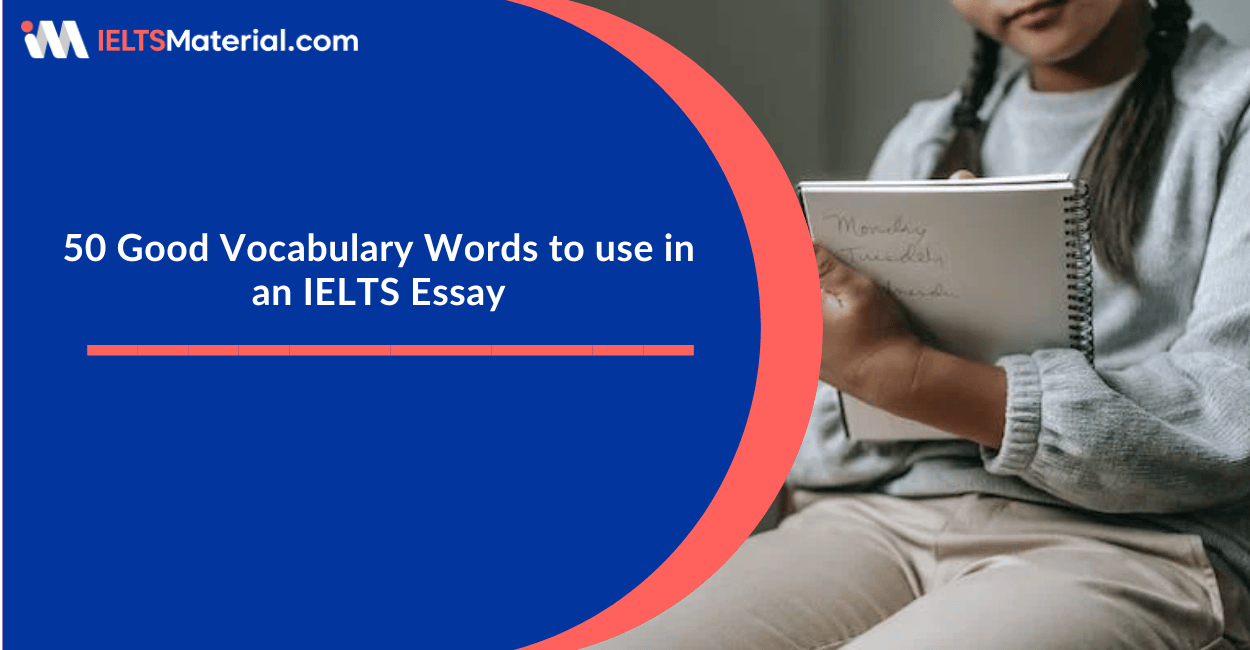
Table of Contents
Importance of vocabulary in ielts, tips for improving ielts vocabulary, list of good vocabulary words for ielts.
Limited-Time Offer : Access a FREE 10-Day IELTS Study Plan!
In this article, we will explore a compilation of 50 good vocabulary words to use in an IELTS essay, gaining insights into their meanings and examining illustrative sentences that showcase their usage.
Thousands of colleges, including the world’s top universities such as Oxford, Harvard, and Yale, accept IELTS band scores for admission. The governments of English-speaking countries such as the USA, Australia, and the UK also accept IELTS for visa applications.
IELTS exam takers, however, frequently encounter substantial challenges. As the IELTS is designed to assess English language proficiency, one’s vocabulary proficiency, in particular, will exert a significant influence on all facets of the test. Consequently, the role of vocabulary assumes a paramount significance in the comprehensive preparation for the IELTS.
To learn more and get access to top-edge IELTS study materials, Book a FREE Demo!
Effective communication requires an understanding of the complexities of the English language. Good vocabulary skills are thus crucial for professions requiring regular interaction with the public and customers, including management and leadership positions. Avoiding misconceptions and miscommunications can be accomplished by being aware of the minor variances between words.
Now, let’s take a look at some tips for learning new vocabulary and incorporating it into everyday language use.
- Repeat new words . This practice helps to stick those words in your memory.
- Make a pictorial representation of the words . You can remember the meaning of a word better when you draw it on paper.
- Utilise the new word in a sentence. Try to remember it an hour later. Just before you go to bed, go over it. Use it once more the next day.
- Use new words in phrases. When we learn words in short chunks, such as phrases made up of many words and common dialogues, we recall them better. By doing this, you can also guarantee that you are aware of how to employ this verb in at least one sentence.
- Challenge yourself with vocabulary quizzes. The brain is stimulated when it perceives a challenge. Playing games that teach you new words and meanings is a fun way to increase your vocabulary.
- Make use of flashcards. Flashcards are a popular study tool for memorising important information, such as new phrases or vocabulary from a second language.
- The best way to increase your vocabulary is by improving your spelling . For example, when writing an essay, you might memorise a writing template. By doing this, you’ll acquire new words while also improving the quality of your language.
Ready to level up your vocabulary game? Grab our fast-selling IELTS Vocabulary Ebook!
Check this list for good vocabulary words to use in IELTS essays, given along with their meaning and an example sentence to illustrate how to use the word.
| 1 | Eg.: A generous grant, enabled the library to significantly aggrandize its collection of books on tape. | |
| 2 | Eg. : The doctor adjured his patient to concur for heart surgery. | |
| 3 | Eg. : The leader seems quite dogmatic. | |
| 4 | Eg.: The film was criticised for its gratuitous violence. | |
| 5 | Eg. : Sculptures of temple deities are impossible to be described in words. | |
| 6 | Eg. : The dancer is nimble in her movements. | |
| 7 | Eg. : Xenophobia is not a good sign. | |
| 8 | Eg. : Notorious as an iconoclast, that music critic isn’t afraid to go after sacred cows. | |
| 9 | Eg. : His teaching methods are idiosyncratic but successful. | |
| 10 | Eg. : He defeated the incumbent governor by a large plurality. | |
| 11 | Eg. : This pinpoints a fundamental weakness in the libertarian defence of a market economy. | |
| 12 | Eg. : A moralist who decried what she regarded as the licentious and corrupt culture of the entertainment industry | |
| 13 | Eg. : She broke taboos, risking ostracism and derision in the process. | |
| 14 | Eg. : While the detective was supposed to be neutral, he described the suspect in a pejorative manner. | |
| 15 | Eg. : Leaders should deliver the message without sounding sanctimonious so everyone hears it and doesn’t tune out. | |
| 16 | Eg. : The trial was a travesty of justice. | |
| 17 | Eg. : He experienced several great social vicissitudes in his life. | |
| 18 | Eg. : She realised that it was the perfect time to beseech the former FBI agent for assistance. | |
| 19 | Eg. : Villages are dying because of the exodus of people to the cities. | |
| 20 | Eg. : When planning your next tactics, it is advisable to carefully scrutinize your opponent’s moves. | |
| 21 | Eg. : The fruit is indigenous to Africa. | |
| 22 | Eg. : The painting was the epitome of modern art. | |
| 23 | Eg. : He won the election due to his rhetoric skills. | |
| 24 | Eg. : We should always emulate moral people to be successful. | |
| 25 | Eg. : She crossed every hurdle in her path. | |
| 26 | Eg. : My competence in work has made me reach great heights. | |
| 27 | summary Eg. : The book is accompanied by a compendium. | |
| 28 | Eg. : People with too much ego don’t show any compassion. | |
| 29 | Eg. : Sam had a ruse to fool her. | |
| 30 | Eg. : She is a simpleton. | |
| 31 | Eg. : Nowadays clannish dresses have become a new trend. | |
| 32 | Eg. : After the corona outbreak there was no flurry in the markets. | |
| 33 | Eg. : I found myself in a quandary due to the budget cuts. | |
| 34 | Eg. : The new novel surmises in a way that hardly fits my own social proclivity. | |
| 35 | Eg. : His opulence made her have many fake friends. | |
| 36 | Eg. : The person in the last smiled overtly at that woman. | |
| 37 | Eg. : She made a meddlesome statement. | |
| 38 | Eg. : He came to grief because of his lavish spending habits. | |
| 39 | Eg. : Pollution is a potential menace to the health of the people. | |
| 40 | repair, renovate Eg. : An individual can refurbish his/her image through discipline. | |
| 41 | Eg. : Dozens of forests have been razed. | |
| 42 | Eg. : She listened to the lecturer with rapt interest. | |
| 43 | Eg. : To perpetuate the teaching, teachers should make it memorable. | |
| 44 | Eg. : She died of malignant cancer. | |
| 45 | Eg. : We should not try to denigrate the personality of anyone. | |
| 46 | Eg. : She was dauntless in her pursuit of victory. | |
| 47 | Eg. : Maintaining decorum in school is necessary. | |
| 48 | Eg. : Drinking is detrimental to good health and hygiene. | |
| 49 | Eg. : There will be a dreary meeting tomorrow. | |
| 50 | Eg. : Her grotesque appearance makes her less popular. |
IELTS vocabulary level affects the overall band score of the candidate. If you wish to study in the top universities that require remarkably high scores, you must have a good vocabulary.
You can also purchase the e-book on vocabulary from our online store: Vocabulary for IELTS [pdf] Fine-tune your English with vocabulary exercises from this book.
Also, check:
- Work Vocabulary IELTS
- Advanced Vocabulary for IELTS
- Check your Vocabulary for the IELTS Exam
- IELTS Vocabulary books
- Sports Vocabulary IELTS
Frequently Asked Questions
Can I use these vocabulary words in both the Academic and General Training IELTS essays
Is it necessary to use all 50 words in a single essay
Are there any specific words that examiners prefer in IELTS essays
Can I use idiomatic expressions from my native language in my IELTS essay
Is it better to use complex vocabulary even if I'm not entirely sure about its meaning

Start Preparing for IELTS: Get Your 10-Day Study Plan Today!

Smruti is a passionate and highly skilled content writer working in this field for the past 2 years. She is known for her ability to craft compelling and engaging content. With a keen eye for detail and a deep love for words, Smruti has expertized herself with the latest industry trends. Her commitment to producing high-quality content that resonates with audiences is highly valued.
Check out other Vocabulary eBooks
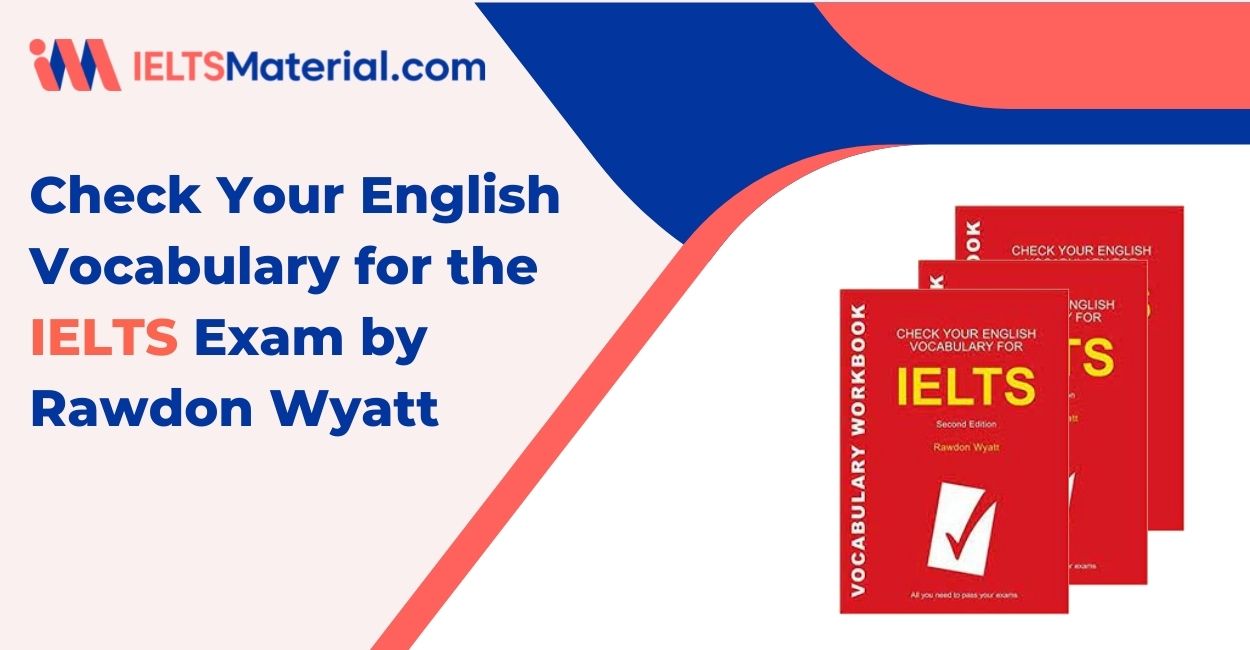
Nehasri Ravishenbagam
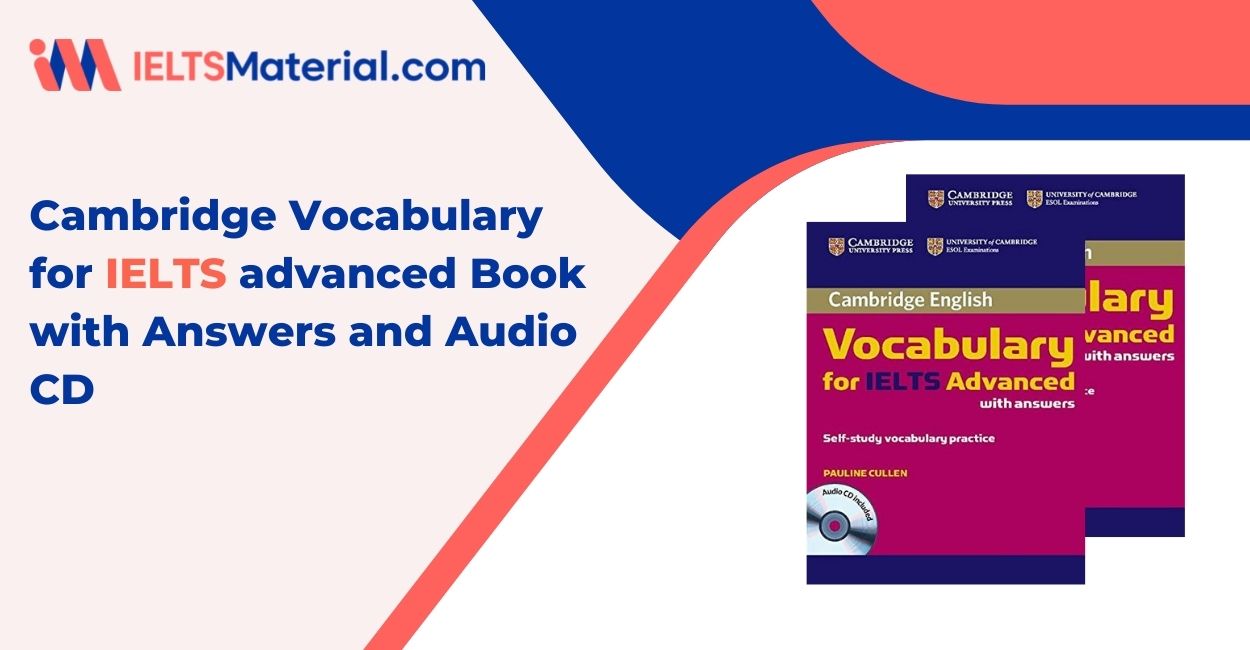
Post your Comments
Recent articles.

Courtney Miller

IELTSMaterial Master Program
1:1 Live Training with Band 9 Teachers
4.9 ( 3452 Reviews )
Our Offices
Gurgaon city scape, gurgaon bptp.
Step 1 of 3
Great going .
Get a free session from trainer
Have you taken test before?
Please select any option
Email test -->
Please enter Email ID
Mobile Band 9 trainer -->
Please enter phone number
Application
Please select any one
Already Registered?
Select a date
Please select a date
Select a time (IST Time Zone)
Please select a time
Mark Your Calendar: Free Session with Expert on
Which exam are you preparing?
Great Going!
- TOEFL Writing Correction Topics
- OET Mock Tests
- Writing Correction
- Speaking Mock Test
- Reading Course
- Listening Practice Tests
- FREE Practice Tests
- IELTS Writing Correction
- IELTS Speaking Practice
- OET Writing Correction
- OET Reading Course
- OET Speaking Mock Test
- TOEFL Writing Correction
- PTE Writing Correction
- OET Listening Practice Tests
- OET (Occupational English Test)
- PTE (Pearson Test of English)
Vocabulary for IELTS Writing Task 2 Essay
- Finance & Money
- Communication
- Climate Change
- Social Media
- Entertainment
- Transportation
- Environment
- Crime and Policing
- IELTS Vocab
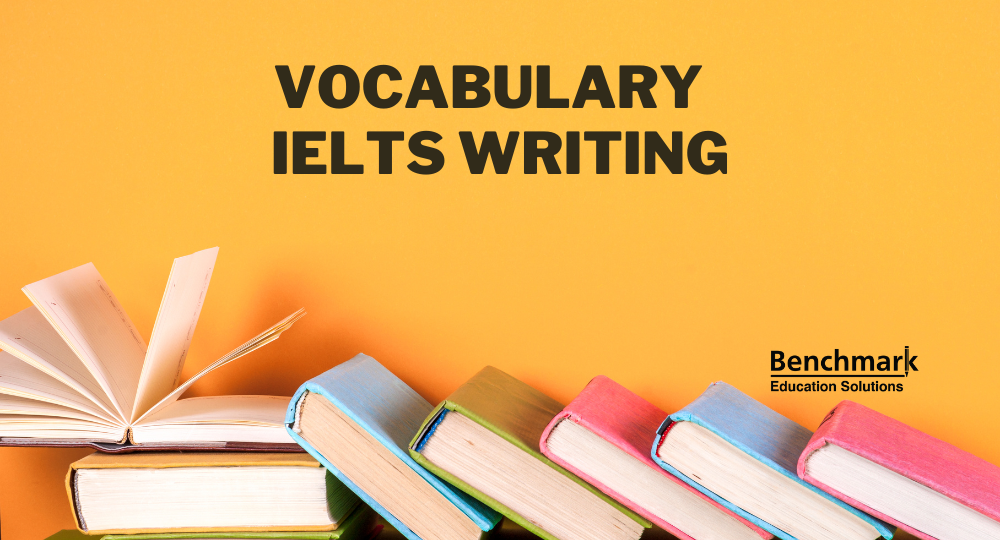
Learning new vocabulary and understanding how your Lexical resource band score is determined in the IELTS test will help you to achieve the best possible result. This vocabulary guide will show you useful tips and strategies to improve your vocabulary, and point you in the right direction of our other vocabulary guides on common IELTS writing topics .
Table of Contents
- What is Lexical Resource?
2.1 Avoiding repetition
2.2 using common and uncommon vocabulary, 2.3 avoiding spelling mistakes, 2.4 accurately using collocations.
- 2.5 Using topic-specific vocabulary
2.6 Communicating clearly
3.1 discovering new words, 3.2 deciding which words to practice, 3.3 reviewing new words, 1. what is lexical resource.
Vocabulary in the IELTS writing test is referred to as your Lexical resource and it makes up 25% of your overall score in both the writing and speaking parts of the exam.
Many candidates say their biggest problem when preparing for the IELTS test is their vocabulary . Have you ever found yourself trying to learn long lists of words? Or trying to cram in as many words as you can into your memory moments before the test? We are going to share some advice on the best ways to learn and remember vocabulary effectively.
2. How Your Lexical Resource Score is Decided
The examiner will mainly focus on the range and accuracy of vocabulary you use in your speaking and writing. This means that you need to:
- Avoid repetition
- Use a mixture of common and uncommon vocabulary
- Avoid spelling mistakes
There are also other things the examiner will be looking for. These are:
- Accurate use of collocations
- Range and accurate use of topic-specific vocabulary
- Clear communication
IELTS Writing
Ielts writing correction & grading.

Improve Your IELTS Score
- 24-Hour Turnaround
- Open 365 Days
- 1 Year Validity
- Handwritten Essays Accepted

Using a range of vocabulary also includes avoiding words and phrases given to you in an IELTS statement , as well as repeating your own ideas .
Being able to paraphrase is a key skill to help you avoid repetition throughout your writing and speaking.
Take a look at our guide to paraphrasing for top tips and examples.
You also need to refer back or forward to people, places and things you mention in your responses. Compare these two examples:
- Children should be able to choose the subjects children want to study.
- Children should be able to choose the subjects they want to study.
In the second example, we have used the pronoun ‘they’ to replace the noun ‘children’. This is a simple example, but it is often the case that test takers do not take the time to look through their work to notice the repetition of words and phrases that could be replaced with a synonym or pronoun. Five minutes at the end of the test could make a big difference.
The reason we are mentioning both common and uncommon vocabulary here is that it is unnatural to use only uncommon or academic vocabulary in your speech and writing. Have a look at these examples:
- The threat of nuclear weapons maintains world peace.
- The intimidation of atomic accouterments cultivates global reconciliation.
In the second example, we have run nearly every word through a thesaurus. Note how it sounds very unnatural, even though ‘uncommon vocabulary’ has been used. You need to feel confident using this language and strike a balance between common and more unusual vocabulary.
Uncommon vocabulary, like idioms and phrasal verbs , are more appropriate in the speaking section of the exam than writing. For the writing section of the exam, we suggest you avoid phrasal verbs and idioms (although some idiomatic expressions may be appropriate for writing task 2).
Spelling is important in the written section of the exam. The fewer spelling mistakes you make, the higher your score in Lexical resources could be.
Candidates often ask ‘ how many spelling mistakes ’ they can make for each band score, but the answer is not as simple as this. Basically, If you make so many spelling mistakes that it causes difficulty for the examiner to understand your writing then you will likely score a band score 5.0 in Lexical resources . If your spelling errors are very infrequent , you may be able to achieve a band score 7.0 and above .
Your spelling mistakes are something that you need to take responsibility for. A teacher can highlight your mistakes, but you need to put in the hard work to learn the correct spelling. Spelling errors are often referred to as ‘ fossilised errors ’ which means that, just like the fossil of a dinosaur, the mistake has been formed a long time ago and can only be changed through practice and repetition .
To improve your spelling you could consider:
- Recording your mistakes in a notebook
- Creating flashcards of common errors
- Ask a teacher, or even a family member or friend to test you on your mistakes
Remember, it is a great idea to look at common spelling mistakes made by IELTS candidates, but some errors will be unique to you… write them down, memorise, hide the word, write… repeat . Repetition is really helpful to undo fossilised errors.
Collocation just means a frequent/common combination of words .
A typical example would be that you ‘make’ your bed (the verb ‘make’ and the noun ‘bed’ are a verb-noun collocation). However, you don’t ‘do your bed’… this is an incorrect verb-noun pairing.
Collocations are a relationship between words that need to be practiced and learned. There is no specific ‘rule’ to learn… practice makes perfect and will help you to sound more natural (as well as increase your Lexical resource score in the IELTS test.
One tip to learn collocations is to practice by topic . A common error is to try and learn long lists of collocations from memory. This will be overwhelming and often ineffective. When the exam comes and you get given a topic, you want to recall the vocabulary and collocations that are linked to the topic, not try to sift through long lists (that you will likely not remember under pressure).
2.5 Using topic-specific vocabulary
You need to prepare yourself with vocabulary that is relevant to the topic you are given. We have put together comprehensive guides on a range of common IELTS topics to help you do just this.
Take a look at the following topics :
- Jobs & Work
- Government/Politics
- Pets and Animals
- News and Media
- Money and Finance
- Science and Technology
- The Environment
Being able to communicate clearly in your writing (and speaking) means that the examiner can understand the meaning you are trying to convey.
One way that vocabulary causes confusion for the reader is the wrong choice of word. You could have used the wrong word which has made the meaning of your sentence unclear. Some candidates often take a risk in the test and decide to use words that they are not exactly sure of the meaning of. This could result in you using the word incorrectly and causing difficulty for the reader. Don’t use the test to try using words for the first time, it is more important to communicate clearly and accurately.
Reference is often an issue, for example, you may have referred back to a previous part of your paragraph or speech using the pronoun ‘it’, but it is not clear what ‘it’ refers to.
IELTS Speaking
Ielts speaking practice.

- One-on-one Zoom Session
- Instant Feedback & Band Score
- Includes Part 1, Cue-card, Part 3
- Exam-based Speaking Topics

3. Learning New Vocabulary
As soon as you have decided that you are taking your IELTS test, you should be actively looking to expand your vocabulary
We recommend that you create a book or electronic copy of all your new words and phrases.
You should also read or listen to English texts as often as you can. These texts could be:
- Newspaper articles
- Youtube videos (preferably with English subtitles to improve your reading skills)

Do not simply add every new word you read to your list of vocabulary. Also, be careful when using a thesaurus. It is often difficult to find exact synonyms in English, and a thesaurus will give you a long list of similar words that may not be appropriate in the context you want to use them. For example, two synonyms of‘ big ’ taken from a thesaurus of are:
If we want to replace big in the sentence ‘ the building is big ’, it is correct to say ‘the building is enormous’ but the sentence ‘ the building is boastful ’ is not appropriate .
We recommend you always create an example sentence of new words in context and a definition . A Learner Dictionary is a great place to find clear definitions for learners of English.
A good example of new words to note down are words that you have seen a few times before in a text, but do not fully understand. The frequency of these words show that they are common in English.
A great way to learn new vocabulary is by topic . Group new words, phrases, collocations, and uncommon vocabulary linked to a common theme. This will make it much easier to remember under pressure.
Do not try to learn a list of technical language or specialist words and phrases . Although topics, such as science or technology, might come up during the test, you are not expected to have specific knowledge of these subjects. Remember, the IELTS exam is a test of your English language ability.
Reviewing new vocabulary is the key to remembering it, and a step that candidates often miss.
It would be very rare to just write down new words, look at them once and be able to recall them in the exam. You need to review new words regularly to commit them to memory .
You also need to actively use a new vocabulary: set yourself a goal of using words and phrases you have learned in real life.
Here are just some ideas to review new vocabulary:
- Create flashcards
- Make a new vocabulary notebook
- Create a mind map
- Put posters around your home
- Record yourself using new vocabulary
There is no right or wrong way to review language, do what works for you .
Vocab articles short lists
Ielts vocabulary themes.
- Finance and Money
Leave a Reply Cancel reply
Your email address will not be published. Required fields are marked *

- ielts writing
- ielts listening
- ielts speaking
- ielts reading
- IELTS Sample Reports
- IELTS Sample Essays
- IELTS Vocabulary
- IELTS Grammar

Recent IELTS Posts
- Guide to Using Grammar Tenses in IELTS Writing & Speaking
- IELTS Grammar Rules for Conditional Sentences
- Grammar Guide to Score High in IELTS Reading
- How to Get a 9 Band in IELTS Speaking
- Guide to IELTS Reading 9 Bands
Exam Updates & Tips!
Signup for preparation and special offers!
You have successfully joined our subscriber list.
Recent posts
- IELTS Speaking Part 2 Topics: Gift
- IELTS Speaking Part 2 Topics: Birthday
- IELTS Speaking Part 2 Topics: Family
- IELTS Speaking Part 2 Topics: Movie
- IELTS Speaking Part 2 Topics: Book
- Link copied!
Useful Phrases for IELTS Writing Task 2 Essay
Here we have listed useful vocabulary and phrases you can use when writing an essay in IELTS Writing Task 2 . Instead of providing an extensive list of 100+ essay phrases for IELTS, we have narrowed it down to the most essential.
Keep the vocabulary list next to you while you practise, so you can get ideas for linking and expressing your views.
- Over the last century ...
- The idea that ... has its merits.
- While this is an interesting proposal and has some merit, my own view is that it would ...
- Despite these arguments, there is an equally strong case to be made that it would be ...
- There is much debate about the position. I will discuss both these ... in this essay.
- This is a complex issue and my belief is that ...
- There are a variety of potential ways of combatting this problem.
- However, in order to find a solution, it is first of all necessary to understand what has led to this happening.
- Finding the right policies is not an easy task as it is a complex problem.
- There is some dispute whether the best method of …
Stating viewpoints

- There are different viewpoints held in this discussion.
- Some people argue that ..., while others think that ...
- However, there is a large body of opinion which is opposed to …
- It is said that three-quarters of all children ...
To add more points on a topic
- There are several reasons why ...
- It can also be argued that ...
- This is certainly not an easy issue though, because ... has caused as many problems as it solves.
- ... is the only point to be taken into consideration when ...
- ... is an urgent problem that needs to be addressed.
- At the same time, a lot of publicity is given to what the public consider to be ...
- Most of the experts blame … for this problem.
- Given that … is cheap and ..., it is not surprising that ...
- My conclusion is therefore that ...
- In conclusion, I believe that while there are real merits on both sides of the argument, the moral case against forcing people to work slightly outweighs any benefit to ...
- Its benefits outweigh the drawbacks and have a positive effect on many aspects of our lives ...
- All things considered, ...
- My own personal view is that there is merit in both sides of the debate.
- Finally, ...
See also: Linking Words For IELTS Writing and Speaking
MORE RESOURCES

IELTS Essay Writing

5 Types of IELTS Essays
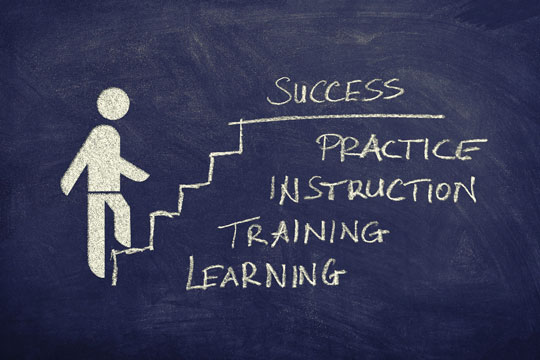
How to Improve IELTS Writing Task 2 Essay?

IELTS Discussion Essay Sample

IELTS Agree / Disagree Essay Sample

IELTS Advantage / Disadvantage Essay Sample

IELTS Problem / Solution Essay Sample

IELTS Two-part Question Essay Sample
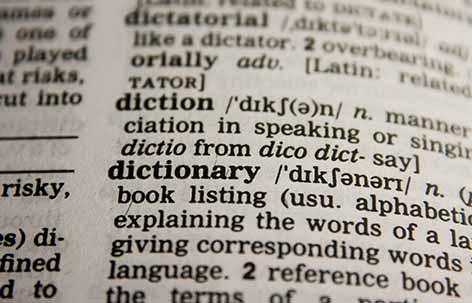
Vocabulary for IELTS Essay

Linking words for IELTS
We are here to help.
Whether you have any questions, want to leave feedback or discuss cooperation possibilities, do not hesitate to contact us. We are here to help and will answer as soon as possible. In the meantime, discover our site and let it help you smooth your IELTS journey and make your studies more efficient.
You will find useful information on all the four IELTS test components:
Got a question? We'd love to hear from you!
- Practice Test
- Useful Tips – Tricks
- Full Writing Review
- General Writing Task
- Writing Task 1
- Writing Task 2
- Writing Exercises
- Writing Sample – Topics
- Writing Vocabulary
- Speaking Vocabulary
- Intro Question
- Speaking Part 1
- Speaking Part 2
- Speaking Part 2 – Audio
- Speaking Part 3
- IELTS Books
- Recent Exams
- IELTS Vocabulary
- Essay from Examiners
- IELTS Ideas
- Over the last century …
- The idea that … has its merits.
- While this is an interesting proposal and has some merit, my own view is that it would …
- Despite these arguments, there is an equally strong case to be made that it would be …
- There is much debate about the position. I will discuss both these … in this essay.
- This is a complex issue and my belief is that …
- There are a variety of potential ways of combatting this problem.
- However, in order to find a solution, it is first of all necessary to understand what has led to this happening.
- Finding the right policies is not an easy task as it is a complex problem.
- There is some dispute whether the best method of …
Stating viewpoints
- There are different viewpoints held in this discussion.
- Some people argue that …, while others think that …
- However, there is a large body of opinion which is opposed to …
- It is said that three-quarters of all children …
To add more points on a topic
- There are several reasons why …
- It can also be argued that …
- This is certainly not an easy issue though, because … has caused as many problems as it solves.
- … is the only point to be taken into consideration when …
- … is an urgent problem that needs to be addressed.
- At the same time, a lot of publicity is given to what the public consider to be …
- Most of the experts blame … for this problem.
- Given that … is cheap and …, it is not surprising that …
- My conclusion is therefore that …
- In conclusion, I believe that while there are real merits on both sides of the argument, the moral case against forcing people to work slightly outweighs any benefit to …
- Its benefits outweigh the drawbacks and have a positive effect on many aspects of our lives …
- All things considered, …
- My own personal view is that there is merit in both sides of the debate.
- Finally, …
LATEST POSTS
Lesson 18: urbanisation – writing band 8, lesson 17: travel – writing band 8, lesson 16: media – writing band 8.

IELTS App - For Mobile
Ready for the IELTS exam with our IELTS app. Over 2 million downloads

Popular Last 24h
[ebook] ielts academic writing task 1 samples pdf, listening full test 8 - section 3, talk about the happiest situation in your life, describe a piece of art you like, listening full test 9 - section 1, writing task 2: children should begin their formal education at a very early age, describe a newspaper or magazine you enjoy reading (part 2/3).
- IELTS Test/Skills FAQs
- IELTS Scoring in Detail
- Forecast Speaking – 2023
- List IELTS Speaking Part 3
- List IELTS Speaking Part 1
- IELTS Writing 2023 – Actual Test
Our Telegram
Join our community for IELTS preparation and share and download materials.
The information on this site is for informational purposes only. IELTS is a registered trademark of the University of Cambridge ESOL, the British Council, and IDP Education Australia. This site and its owners are not affiliated, approved or endorsed by University of Cambridge ESOL, the British Council, or IDP Education Australia.
Latest Articles
Writing task 2: knowledge in books/internet, writing task 1: the number of international applicants to the universities, ielts speaking part 1: flowers, c.a.m ielts 19 listening: test 4, c.a.m ielts 19 listening: test 3, most popular, describe a film that made you laugh, describe a person whom you met for the first time and made you happy, topic: experience is the best teacher, describe something difficult you would like to succeed in doing, in many countries,today there are many highly qualified graduates without employment..
ieltspracticeonline All Rights Reserved
- E-mail: [email protected]

- IELTS Practice Tests
- Recent Actual Tests
- Speaking Part 1
- Speaking Part 2
- Speaking Part 3
- General Training Writing Task 1
- Process Diagram
- Mixed Charts
- Advantages & Disadvantages Essays
- Agree or Disagree Essays
- Discuss Both Views Essays
- Direct Questions Essays
- Problems/Causes & Solutions Essays
- Speaking Vocabulary
- Writing Vocabulary
- Collocations for IELTS
Vocabulary for IELTS Writing Task 2 Band 8+

In the IELTS academic or general writing task 2, you will need to write an essay of at least 250 words on a topic that requires you to present an argument in a format that the instructions lay down. This Task takes about 40 minutes.
The topics are primarily abstract, with no correct answer. The point to note here is that this task is worth twice as much as IELTS Academic Writing Task 1 . So, developing a relevant vocabulary for presenting your views will be a wise investment.
This article will provide some commonly used vocabulary for IELTS writing task 2 . Read the article till the end to learn IELTS writing task 2 vocabulary words that can help you shine brighter.
Vocabulary for IELTS Writing Task 2
The general format for writing academic writing task 2
Introduction + your opinion/ your viewpoint/ what you think about the statement/ whether you agree or disagree/ main advantages or disadvantages +
2nd paragraph with an example, and/or explanation, and/or evidence ( and/or extra details) +
3rd paragraph with an example, and/or explanation, and/or evidence ( and/or extra details) +
(4th paragraph with an example, and/or explanation, and/or evidence ( and/or extra details) +
…………….. …………….. …………….. ……………..)
Conclusion + restating the main point of your discussion/ your position on the issue/ proposing a solution.
Vocabulary for the Introduction Part
In the introduction part of your IELTS essay, you should write sentences relevant to the topic given and generally accepted ideas about it. Use your best English here, as it will attract or bore your reader with the writing. You will make or break your impression in this paragraph. Be very cautious about the introduction part. Never just copy the sentence of the question. If you need to, use synonyms and different sentence structures.
Examples:
1) Mobile phones and the Internet are two fantastic innovations of science for communication and have facilitated people for a long time. These two technologies are widely used almost worldwide and have become a part of our daily lives. We can’t deny the usefulness of these technologies as they have made our life more accessible than ever before. In my opinion, these two devices’ advantages far outweigh their demerits.
2) Every human being who aims to acquire higher knowledge requires attending colleges or universities. The main reason for attending universities or colleges may differ from man to man. Someone may aspire to achieve more excellent knowledge; someone may just want to earn a certificate, or someone might attribute it as a step towards career development.
3) Compared with people in the past, we concern far less about food preparation today, thanks to the development of agriculture and scientific technology. A fair amount of beneficial influence is occurring to us consequently.
Useful vocabulary/phrases to open/start the essay:
- Many/some people claim/opine/believe that…
- There is no denying that…
- It is often said that…
- These days…/ Nowadays…/ In this day and age…
- It goes without saying that…
- It is universally accepted that…
- We live in an age when many of us are…
- People are divided in their opinion regarding…
- …. is one of the most important issues…
- Whether …. or …. is a controversial issue…
Useful vocabulary/phrases to end the Introduction part:
- Let us examine both views before reaching a concrete decision.
- The following paragraphs discuss whether …… or …… and reach a reasonable conclusion.
- The following essay takes a look at both sides of the argument.
- My two cents go for…
- However, I strongly believe that…
- I oppose the view and my reasons will be explained in the following paragraphs.
- I will support this view with arguments in the following paragraphs.
- I personally believe that…
- Thus the advantages far outweigh the disadvantages…
- I wholeheartedly believe that this trend should be changed.
Vocabulary for the opinion part:
According to the essay types (learn what the IELTS essay types are), use one of the following connective words/ linking phrases to write down your opinion. However, remember that if the question does not ask you to give your opinion but to compare advantages and disadvantages, you should not strongly express your opinion. An opinion should only be written for opinion essays.
- In my opinion…
- I strongly opine that…
- I strongly agree with the idea that…
- I strongly disagree with the given topic…
- I think…
- My opinion is that…
- Personally speaking…
- In my view…
- I believe…
- Apparently…
- According to me…
- From my point of view… (Not ‘In my point of view’)
- As far as I am concerned…
- From my perspective…
- I realise…
- To my way of thinking…
- It seems to me that…
- To me…
- To my mind…
- My own view on the matter is…
- It appears that…
- I feel that…
- I understand…
- I suppose…
1) But in my opinion, giving every unemployed person access to a mobile phone & the internet is a matter of great dispute. I believe this idea can help countries with sufficient funds for the whole fiscal year and have already adopted technologies like the internet for a very long period. But this might be a complete loss for an undeveloped country.
2) I believe parents always teach us in many ways, intentionally and unintentionally; however, teachers’ contributions to our learning process cannot be ignored.
3) I strongly agree that the gender issue is only a determinant in the battle of the sexes, not the battles among nations and peoples. It is, therefore, impertinent, if not irrational, to conclude that world conflicts result from the rule of a particular gender and that the more delicate sex would do a better job at prevailing peace if selectively put at the helm of human nations.
Vocabulary for the 2nd paragraph Part
- It is true that…
- First…
- First of all…
- Firstly…
- First and foremost…
- Initially…
- To begin with…
- To start with…
- Let us take a look at…
- It is worth considering…
- In the first place…
- Though it is true that…
- Some people believe that…
- Many people think that…
- According to many…
- Many support the view that…
- On the one hand…
1) It is true that an unemployed educated person with a mobile phone and an internet connection can get more access to the local and foreign job sectors and can use these technologies to get a job or become self-employed.
2) First of all, the maximum number of cars are owned by rich people, and fuel prices would not restrain them from using cars. The fuel price increased significantly over the past 12 years, which has done nothing to reduce car usage.
3) To begin with, houses constructed by those in the lower-income groups look like the most cost-effective option. In this process, they invariably explore cheaper options that include a compromise on material and construction quality.
Vocabulary for the 3rd, 4th …… paragraph Part
- Second(ly)… (Not ‘Second of all’)
- Third(ly)…
- Then…
- Next…
- After that…
- Again…
- Also…
- Besides…
- Likewise…
- In addition…
- Consequently…
- What’s more…
- Furthermore…
- Moreover…
- Other people think that…
- Other people believe that…
- On the other hand…
- Apart from that…
- Finally…
- Last but not least…
1) Besides, unemployed persons living in urban areas; can quickly get information related to the job-offering companies with these technologies……………. Furthermore, the use of these technologies gives them advantages over others…….
2) Besides, people would learn more about outer space as the experiment and scientific research in outer space is going on more steadily than ever.
3) Apart from that, computers would become more powerful and have superior artificial intelligence. We will have robots for hazardous work like mining and outer space research. Surprisingly, e-commerce would be more convenient, and most people will purchase online rather than go to shops in person.
Vocabulary to show the comparison:
- In the same way…
- Similarly…
- Like the previous point…
- Similar to…
- At the same time…
- Just as…
1) Similarly, all the companies and offices are becoming automated and using computers, the internet and other technologies vastly than any other time in history…….
2) At the same time, the software could be used for many purposes, such as learning through computers, accounting in computers, drawing, storing information, sending information from one person to another, etc.
3) Also, reading books is like peeking into the minds of the most incredible people. A book is like a conversation with the writer and reading many books gives us an insight into the thinking process of different writers.
Vocabulary to show contrast:
- On the contrary…
- However…
- Nevertheless…/ Nonetheless…
- Nonetheless/ Nevertheless…
- Oppositely…
- Alternatively…
- Unlike…
- While…
- Whilst…
- Although…
- Though…
- Even though…
- Despite… / In spite of…
- In spite of the fact that…
- In contrast to this…
- Then again…
- Despite the fact that…
- Even so…
- Meanwhile…
1) On the contrary, poor countries suffer from the lack of sufficient budgets to ensure some fundamental needs of people like health, education, medicines etc. Then again, those countries don’t have a chance to spend a lot of money to initiate a simple project……..
2) Unlike a TV, a radio cannot display an image or a video, and communication is limited to voice only. Typically, a radio is used for access information such as news and live traffic updates………
3) In contrast, the consumption of fuel to run the car contributes to the rise of global warming and affects the ozone layer. So, using bicycles in cities would be a better alternative………
Vocabulary to show an example:
- As an example…
- As an illustration…
- As an instance…
- As for instance…
- For instance…
- For example…
- As for example…
- By way of illustration…
- By way of example…
- To illustrate…
- To paraphrase…
- To show an example…
- To give an example…
- To cite an example…
- To cite an instance…
- Take one example…
- Take one instance…
- Like…
- That is…
- Among others…
- Such as…
- Particularly…
- Specifically…
- Regarding…
- In particular…
- Including/ To include…
- Namely…
- With respect to…
- As far …. is concerned…
- As a piece of evidence…
- An example is…
- …could be a good/ideal example here
- A case…
- When it comes to…
- As a model…
1) For instance, there is no guarantee that all unemployed people will use technology positively……..
2) As an example, many governments of the first world countries have initiated other projects like:………
3) For example, if a public bus gets busted in the middle of the road, the passenger can quickly leave it a look for another one.
Always use a comma (,) after ‘For example, ‘for instance’ etc.
Vocabulary to present an idea:
- Research shows that…
- Research has found that…
- Not only… but also…
- In terms of…
1) Research shows that the employment opportunity and crime ratio in a city has a deep underlying relationship, and that is why… 2) When it comes to deciding who should be responsible for teaching children discipline… 3) With respect to mix-school classrooms, it is quite evident that…
Phrases to introduce more ideas/ examples:
- On top of that…
- What is more…
- Another point worth noting is…
- Another factor to consider is…
- Not only …. but also…
1) On top of that, rich countries emit more CO2 than the rest of the world, which is why they have greater responsibilities. 2) Another point worth noting is the number of TV channels we have these days. 3) What is more, leaders are born, not made.
Vocabulary to show consequence, effects or result:
- As a result…
- As a consequence…
- As an effect…
- Thus…
- The reason why…
- Therefore…
- On account of…
- Because of…
- Hence…
- Eventually…
- For this/that reason…
- Thereby…
- Due to…
- Owing to…
1) Therefore, we should avoid using our budget on an uncertain project……..
2) As a result, people are struggling to lead a healthy and secure life………
3) Consequently, residents will be able to find more job opportunities in this factory and have a better socio-economic status………
Vocabulary to show result & reason:
- As a result of…
- One reason behind this is…
- … has led to/ … has resulted in…
1) The overuse of natural resources has already resulted in the scarcity of such valuable resources that we can not do without… 2) This has led to moral degradation, and we are much behind at a challenging time looking back. 3) One reason behind this is the negligence of individuals already suffering from minor health-related issues.
Vocabulary to sum up at the end of a paragraph:
- To sum up…
- In short…
- In a word…
- To put it simply…
- That is to say…
- To repeat in short…
- To summarise…
1) In a word, I think the idea can be beneficial for developing countries, but for us, it might be sinister…
2) That is to say, we must ensure the safety of our children first………
3) In short, the overall infrastructure of the area will develop.
N.B. The above vocabulary is specifically useful while finishing a paragraph. You can use these words/ phrases to re-state the paragraph’s topic.
Vocabulary to make a point stronger/ Adding emphasis:
- Obviously…
- Needless to say…
- There is little doubt that…
- Thought…
- Nonetheless…
- Nevertheless…
- Still…
- Must… After
- After all…
- Even if…
- Thus…..
1) Although parents are essential teachers in our lives, and none can deny their invaluable role in making us what we are, they aren’t always the best teachers…….
2) Thus air and water pollution caused by this factory will ruin the local environment and wildlife fundamentally………
3) Although industrialisation is necessary for the growth of a country it must be regulated. The proper measures must be in place to reduce the negative impacts of byproducts on the environment.
Vocabulary for clarifying or rephrasing:
- To put it in another way…
- In other words…
1) To put it in another way, nuclear power has great potential to provide the power requirement of industries worldwide.
2) In other words, fathers have a significant role to play when it properly comes to the upbringing of children.
3) To put it simply, co-education can bring advantages far outweigh its demerits.
Vocabulary for generalising a statement:
Whenever you need to show a generalisation or general idea, you can use these vocabularies to present your point.
- Generally……
- Generally speaking……
- In general……
- Overall……
- All in all……
- By and large……
- Basically……
- As a rule……
- Essentially……
- On the whole……
- All things considered……
1) All things considered, a certain reserved position for women in high-level jobs is a good idea to empower women towards the overall betterment of the organisation and society.
2) In general, it can be stated that in the upcoming few years humans will be blessed with adequate facilities, which definitely will make their lives quite easier, due to advanced technology.
3) As a rule, in most countries, a zoological garden is monitored strictly and the health, treatment and food are properly ensured for the animals they keep.
Vocabulary for expressing condition:
Some arguments and statements in your essay would require you to show that it is dependent on some condition. Following is the list of vocabularies you can use to present conditions in your writing.
- If……
- Provided that……
- Because of that……
- For this reason……
- Unless……
- Providing that……
- So that……
- In case……
- Whether…….
1) If the proper measurements and initiatives are not taken, the pollution will keep on increasing and that would someday threaten the existence of our life.
2) Unless we change our diet and get involved in some sort of outdoor activities and sports, the average weight would keep on increasing.
3) For these reasons, we should preserve a certain percentage of high-level jobs for qualified women.
Vocabulary for expressing Agreement
In an agreement/ disagreement type essay, you will often need to express whether you agree/ disagree or partially agree with a given statement or opinion. The following vocabulary would be helpful to express your agreement with something.
- I quite agree that……
- I strongly agree……
- I completely agree that……
- I totally agree with the given idea that……
- I agree with the opinion that……
- I am quite inclined to the opinion that……
- I could not agree more……
- I concur with the group who believe that……
- I accept that……
- I accept the fact that……
- I approve of the idea……
- I am in agreement……
- I consent that……
1) I quite agree that owning a car has far more advantages than disadvantages.
2) I am in agreement with the group of people who believe that the government should build more sports facilities to promote public health.
3) I agree with the opinion that more taxes should be imposed on fast food items.
Vocabulary for expressing Disagreement:
Following are some useful vocabulary to use whenever you want to express your disagreement with an idea, opinion or statement. You will usually use those in agreement/ disagreement type IELTS essays.
- I disagree with the opinion that……
- I strongly disagree…….
- I completely disagree with…….
- I totally disagree with the given idea that…….
- I disagree with the statement…….
- I quite oppose the opinion that…….
- I disapprove that…….
- I totally do not accept the fact that…….
- My own opinion contradicts…….
- I disagree with the group of people…….
- However, my opinion is different…….
1) I quite disagree that building more roads only can solve the ever-increasing traffic problem in most cities.
2) I oppose the opinion that government has no responsibility for supporting the senior citizens.
3) My opinion contradicts the group of people who believe that space research has no value for us.
Vocabulary for expressing partial agreement:
In some cases, you will have an opinion or point of view that would not completely agree or disagree with a given opinion or statement. In this case, you should clearly mention that you partially agree with the opinion but to some extent, you also disagree with this. In these cases, using the following vocabulary will be very helpful.
- To some extent……
- In a way……
- I agree with the given statement to some extent……
- Up to a point, I agree……
- More or less……
- So to speak……
1) In a way, I agree that it is the government’s responsibility to keep the environment clean, but without individual effort, it cannot be achieved.
2) To some extent, I agree with the opinion that space research is a waste of money but the invaluable effects these research works can have could not be denied.
3) So to speak, mothers play the most important role in the upbringing of children. However, the contribution a father can have to the children can’t be ignored.
Vocabulary for expressing certainty:
To make a point or argument stronger, you often need to show the certainty of your expression. To do so, use the following list of vocabularies:
- Certainly…….
- Definitely…….
- No doubt…….
- Of course…….
- Doubtlessly…….
- Without any doubt…….
- Undoubtedly…….
1) Of course, learning from books in a formal educational institution and learning from books for someone’s own interest are both highly important.
2) Definitely, practical lessons help us to have a deeper understanding, while theory learned from books will be forgotten far easier.
3) Undoubtedly ultimate exhaust of natural resources would create chaos and many wild lives would be endangered as well.
Vocabulary for Adding further information:
In your essay, you need to present reasons and arguments to make your point of view stronger. For this, you often need to add multiple examples or cases and those examples or cases should be connected using some linking words. Such linking words are given below so that you can use them in your IELTS essay.
- In addition…….
- And…….
- Moreover…….
- Similarly…….
- Furthermore…….
- Also…….
- As well as…….
- Besides…….
- Even…….
- Too…….
- What’s more…….
- Again…….
- In a similar fashion…….
- Likewise…….
1) What’s more, university education should be based on talent and performance, not based on equal gender opportunity.
2) Likewise, if the popular media provides good news such as educational, scientific and so on, this can motivate the young generation to achieve more knowledge.
3) Even, second or third chances to those heinous criminals are often found fruitless, and they commit crimes again.
Vocabulary for presenting time or sequence:
Expressing the time or sequence is important to show a natural flow in your arguments and paragraphs. Important vocabularies that can be used to show time or sequence are given below.
- First/ Firstly…….
- Second/ Secondly…….
- Third/ Thirdly…….
- Last/ Lastly…….
- At the same time…….
- Meanwhile…….
- Since…….
- As soon as…….
- After this / that…….
- Before…….
- After…….
- Afterwards ……
- During…….
- While…….
- Simultaneously…….
- Following this…….
- When……
1) At the same time, the technological revolution affects all countries around the world in many ways significantly.
2) Meanwhile, we should try our best to put every effort to make our environment clean.
3) Afterwards, these steps could help mass people to be aware of the danger of their fast food intake.
When you are asked to present an argument, you should always look at it from two sides, giving reasons why you agree and disagree before reaching a conclusion. Other words and expressions which you might find useful include:
- I believe that……
- Despite this/ in spite of this……
- Also……
- Thirdly……
- I think……
- Finally……
- In conclusion……
- Nonetheless……
- Admittedly……
- On the contrary……
- At any rate……
- Notwithstanding……
- For all that……
- Even if……
Other transitional words/connective words
- Else…
- Otherwise…
- As soon as…
- As much as…..
1) They take care of the children as much as parents do ………………
2) As soon as we realise the problem ………………
3) Otherwise, the number of unemployed graduates will keep on increasing ………………
Some correct and incorrect expressions:
Correct Incorrect In my opinion… From my opinion… From my point of view… In my point of view… Second/ Secondly… Second of all… On the other hand… On other hand… Last but not least… Last but not the least… In conclusion/ To conclude… In a nutshell…
Vocabulary for the conclusion part
- In conclusion…
- In summary…
- To conclude…
- To conclude with…
- In general…
- All in all…
- Overall…
- On the whole…
- To draw the conclusion…
- In a nutshell…
- To elucidate…(‘To elucidate’ means – ‘make something clear’ or ‘to explain’.)
- All things considered…
- By and large…
- Taking everything into consideration…
- Taking everything into account…
- Weighing up both sides of the argument…
(Useful Tip: Avoid using ‘ In a nutshell ‘ as it is not formal. Use ‘ In conclusion/ to conclude ‘ instead.)
1) In general, even though studying English in an English-speaking country is preferable, a reasonable level of English can be achieved in one’s own country if a student is gifted and dedicated to studying.
2) To sum up, if the population explosion continues, many more people will die of starvation in poor countries. Life in the cities, even in affluent nations, will become increasingly difficult.
3) To conclude, I recommend that the only sensible way to solve this problem is to educate young people about the dangers of drug use and to take steps to reduce the pressure of competition.
4) In conclusion, nuclear technology has positive uses but is nonetheless dangerous. However, it would have been better if it had never been used to create nuclear weapons. If life on Earth continues, all the world’s nuclear nations should agree to disarm it as soon as possible.
N.B. The conclusion part of the IELTS Essay or IELTS Academic writing task 2 usually begins with a memorable concluding phrase that links it to the rest of the essay. Notice that a conditional sentence can be very effective in the conclusion. One reason is that it can refer to what might occur due to your suggestions or recommendations. Of course, you can also use conditional sentences elsewhere in your essay. If you use conditionals, be sure that the construction of your sentences is grammatically correct.
Also, in a short essay of approximately 250 words, the conclusion can be just one or two sentences long. The conclusion should briefly summarise what you have said in your essay and does not usually contribute a new idea unless it is a minor point. However, it is an excellent place to make recommendations or suggestions or give advice and offer solutions if asked to do so.
Tips to Master the Vocabulary for IELTS Writing Task 2
Reading the above way of creating an essay out of the IELTS writing task 2 topics might have given you some good things, but at the same time, we have some bonus tips that you can readily use.
Read the question really well. Don’t make the mistake of assuming what you are expected to do. You could be asked to do any of the above types of questions.
Make sure you sound like an academic when arguing and avoid using overtly passionate language like I hate or I would not like.
Do not write in one big paragraph, make sure you break up each section while keeping in mind the cohesiveness of the essay.
Try not to repeat yourself even when trying to reiterate an idea. Use different terms or angles if you feel the need to reiterate in any way.
Take 5 to 10 minutes to plan the essay before you start writing it. This makes all the difference once you begin. It will help you achieve the task in less time.
Make sure to conclude your essay. Even if you are running out of time, write a few concluding lines to your essay.
Avoid using slangs, overtly complicated language or leaving sentences half-done. Make sure you have time to revise and make corrections since the exam is written in pencil.
A Final Word
When it comes to which words to use in IELTS Writing Task 2 , there are a handful of terms you can memorize to set yourself up for success. You must learn vocabulary to make your essay look eloquent with rich English words; one way of doing it is to practice new words. However, more than just learning the most common vocabulary used in IELTS Writing Task 2, practising with that vocabulary will be crucial to your success! So try a few practice sentences each time you learn a new phrase to integrate it before test day better.
Growth in the population in largest cities
How much money is spent in the budget by the uae, leave a reply cancel reply.
Your email address will not be published. Required fields are marked *
POPULAR POSTS
Ielts recent actual tests [full pdf + audio], ielts listening practice test 204, the key to ielts writing task 2 by pauline cullen [pdf + audio], 200 ielts speaking sample answers [pdf + audio], ielts books collection: 200+ books, audio & videos [frequently updated], ielts writing task 1 by simon [pdf] free, the vocabulary files c1 + c2 ielts advanced, hackers ielts reading, listening, speaking, writing [pdf + audio], ielts reading practice test 320, get ready for ielts listening, reading, speaking, writing [pdf + audio].

9IELTS is dedicated to providing free materials and resources for IELTS conquerors. Stay constantly updated with a wide range of ultimate tips, strategies, and practice tests to crack the high-stakes IELTS exam!
Recent Posts
Ielts speaking part 1: sports, tobacco and alcohol are drugs that cause addiction and health problems, ielts listening practice test 190, cinema viewing figures for films by country, schools should focus on academic success and passing examinations.
- Terms & Conditions
- Privacy Policy
© 2024 9IELTS . All Rights Reserved.
- IELTS Scores
- Life Skills Test
- Find a Test Centre
- Alternatives to IELTS
- General Training
- Academic Word List
- Topic Vocabulary
- Collocation
Phrasal Verbs
- Writing eBooks
- Reading eBook
- All eBooks & Courses
IELTS Vocabulary
Are you unsure of exactly which IELTS vocabulary you need to do well in the IELTS test?
Here you'll get all the words you need with practice exercises around key academic words, idiom practice, topic related words and other important vocabulary.

It is important to have a flexible use of a wide range of vocabulary for IELTS as the examiner will be looking for this in the writing and speaking.
It is also necessary for your reading so that you understand the texts as they will have a lot of difficult words.
Good IELTS vocabulary is particularly important for those wanting to achieve a band 7 or higher.
Learning Resources
Topic related vocabulary.
There are common themes that appear in the IELTS test, so it can help to learn new words related to these themes so you can use them in the writing and speaking if that topic arises.
These are some common themes we will look at:
- Diet, Fitness and Health
- Information Technology
- Environment
Start learning the Topic Related Vocabulary >>>
Learn 570 Essential Words for IELTS
This list of words was developed by the School of Linguistics and Applied Language Studies at Victoria University in Wellington.
The list consists of 570 word families, and the words were chosen due to the fact that they commonly appear in many academic texts.
You can download the full AWL here: Download Academic Word List
You will notice that some words are in italics. This means that they are the most frequently occurring member of the word family.
Start Learning the 570 Academic Words >>>
Idioms can be confusing to non-native speakers of English as they are phrases that do not have the same meaning as the words actually spoken.
However, they are quite common in English so it is important that you learn about them.
On the idioms pages you'll learn what idioms are and have the chance to learn common idioms and practice them
Learn and practice idioms >>>
A way to potentially increase your speaking score in the IELTS speaking test is to use phrasal verbs (if used properly!).
These will certainly be noticed by the examiner.
Start Learning Phrasal Verbs >>>
Collocations
Being able to collocate properly is extremely important when you speak or write in English, and your skills in this area will be something the examiner is looking out for.
You should not learn new words in isolation. Instead you should check what other words collocate with the new word you are learning.
Start Learning Collocations >>>
Ultimate IELTS Vocabulary Builder
Now you can increase your range of vocabulary for IELTS with a series of structured online video lesson.
Check out the Ultimate Vocabulary Video Course .
Any comments or questions about this page or about IELTS? Post them here. Your email will not be published or shared.
Band 7+ eBooks
"I think these eBooks are FANTASTIC!!! I know that's not academic language, but it's the truth!"
Linda, from Italy, Scored Band 7.5

Bargain eBook Deal! 30% Discount

All 4 Writing eBooks for just $25.86 Find out more >>
IELTS Modules:
Other resources:.
- All Lessons
- Band Score Calculator
- Writing Feedback
- Speaking Feedback
- Teacher Resources
- Free Downloads
- Recent Essay Exam Questions
- Books for IELTS Prep
- Useful Links

Recent Articles
IELTS Line Graph: Governments Expenditure on Research
Jul 23, 24 01:27 PM
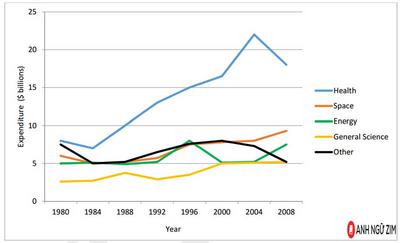
House History Essay
Jul 16, 24 04:06 PM
Paraphrasing Activity for IELTS Reading
Jul 13, 24 07:48 AM
Important pages
IELTS Writing IELTS Speaking IELTS Listening IELTS Reading All Lessons Vocabulary Academic Task 1 Academic Task 2 Practice Tests
Connect with us
Before you go...
30% discount - just $25.86 for all 4 writing ebooks.

Copyright © 2022- IELTSbuddy All Rights Reserved
IELTS is a registered trademark of University of Cambridge, the British Council, and IDP Education Australia. This site and its owners are not affiliated, approved or endorsed by the University of Cambridge ESOL, the British Council, and IDP Education Australia.
IELTS Advantages and Disadvantages Essay Vocabulary
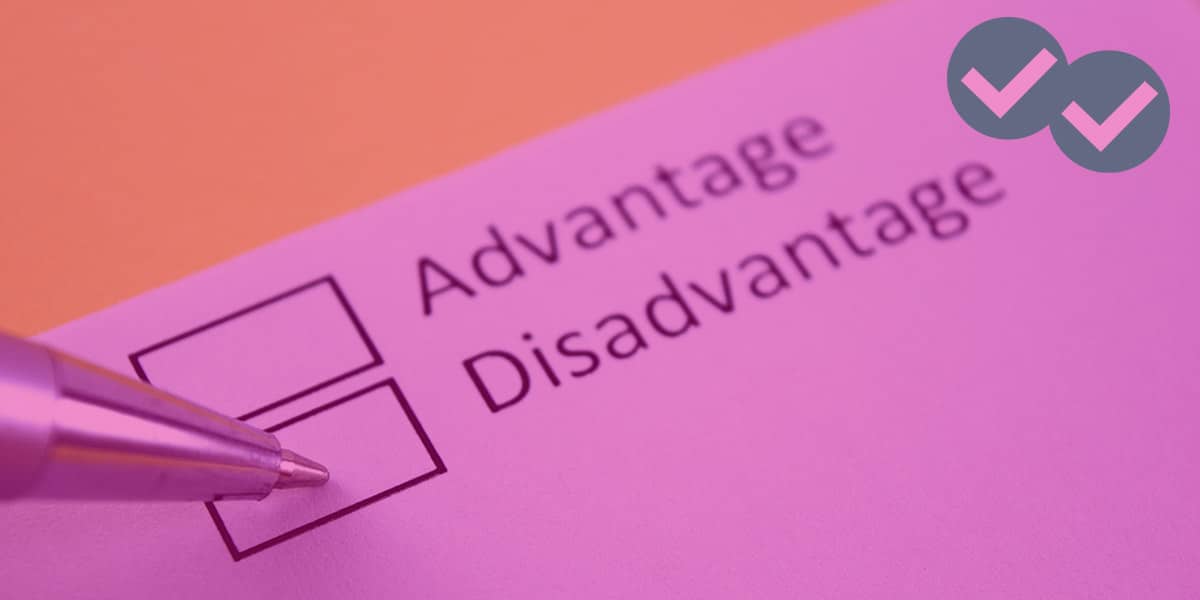
When you turn to IELTS Writing Task 2 (the formal essay) on test day, you may encounter an “advantage and disadvantage” essay. This type of essay asks you to evaluate both sides of an issue. Having the right vocabulary for IELTS Writing Task 2 essays is one key to increasing your band score. This is essay is no different. In this article, we’ll look at IELTS advantages and disadvantages essay vocabulary.
What is an Advantage/Disadvantage Essay on the IELTS?
An advantage/disadvantage essay is any essay that requires you to share both good and bad sides of an issue. They’re pretty easy to spot, because they almost always use the phrase “advantages and disadvantages” in the prompt.
With those ideas in mind, here are a few things you should keep in mind while writing an advantages/disadvantages essay.

When you’re writing an advantage/disadvantage essay, you want to present both sides of the issue. Sometimes, but not always, the prompt will ask you to pick which side is stronger. Don’t make a recommendation about which side is better unless the prompt says to! In other words, don’t overthink this: if the prompt doesn’t ask you to pick a side, don’t. Just focus on describing the pros and cons of the issue.
The structure of an IELTS advantages/disadvantages essay should be simple, with four paragraphs:
- Introduction
- Advantages (OR disadvantages, whichever you have better ideas for)
- Disadvantages (OR advantages, if you wrote about disadvantages first
The main thing to keep in mind is that you should separate advantages into their own paragraph and disadvantages into their own paragraph. It doesn’t matter which one comes first, but they should be distinct.
It can be easy to get caught up in using the IELTS advantages and disadvantages essay vocabulary you’ve learned and forgetting to focus on the ideas. However, you should brainstorm ideas carefully at the beginning of your time to make sure that you have something to write about! Aim to share two advantages and two disadvantages in your essay.
With that in mind, I’ll take a look at some words and phrase you can use for this essay type.
Before we get into specifics, though, let’s look at some basic terms for this section: synonyms for “advantages” and “disadvantages”:
- Benefits/drawbacks
- Positives/negatives
With those in mind, take a look at vocabulary words and phrases you can use to present each side!
IELTS Advantages and Disadvantages Essay Vocabulary: Advantages
- One advantage of X is…
- A primary advantage of X is…
- The positive aspects of X include…
- A/Another benefit of X is…
- An/Another advantage of X is…
IELTS Advantages and Disadvantages Essay Vocabulary: Disadvantages
- A disadvantage of X is…
- One drawback of X is…
- A negative aspect of X is…
- A negative consequence of X is…
- A/another drawback of X is…
Vocabulary and Phrases for Opinions ( ONLY if Required by the Prompt )!
- The benefits of X far outweigh/exceed the drawbacks.
- The disadvantages of X far outweighs/exceeds the advantages.
Example of an IELTS Advantages and Disadvantages Essay
So what does this look like in practice? Take a look at a sample IELTS advantages/disadvantages prompt and a high-scoring essay written in response. If you want, you can use an IELTS essay response sheet and try your own response before checking the answer below!
The Response
One major advantage of streaming films in the home is that it removes barriers between customers and the films. Couples with children do not need to find babysitters to enjoy new cinema. Another benefit of streaming services is that, in many cases, the price of new films is already included in the monthly subscription cost. This means that more people are likely to watch the film at home, even if they were not interested enough to pay money directly to see it in the theatre.
Conversely, a negative consequence of streaming services’ popularity is that, if they reach a certain tipping point of popularity, cinemas may go out of business. Consumers have no incentive to go to the theatre to see the same films they can see in the comfort of their homes. This means that those employed by cinemas, from ushers to those working at concessions stands, may lose their jobs, which could have a knock-on effect on the economy. Another disadvantage of streaming services’ ubiquity is that some films may not be as easy to appreciate artistically on a small screen. By watching these films at home, consumers may be missing out on the director’s artistic vision.
On balance, there are both benefits and drawbacks to the recent rise in streaming services. The effects this trend has are primarily economic (on both individual and societal levels) and artistic.
Word count: 272

Eliot Friesen-Meyers is the Senior Curriculum Manager for Magoosh IELTS and TOEFL. He attended Goshen College (B.A.), New York University (M.A.), and Harvard University (M.T.S.), gaining experience and skills in curriculum development, ESOL instruction, online teaching and learning, and IELTS and TOEFL test prep education. Eliot’s teaching career started with Literacy Americorps in Pittsburgh, Pennsylvania, and later, taught ESL programs at Northeastern University, University of California-Irvine, and Harold Washington College. Eliot was also a speaker at the 2019 TESOL International Conference . With over 10 years of experience, he understands the challenges students face and loves helping them overcome those challenges. Come join Eliot on Youtube , Facebook , and Instagram . Recent blog posts Complete Guide to IELTS Writing Task 1 Complete Guide to IELTS Writing Task 2
View all posts
More from Magoosh

One response to “IELTS Advantages and Disadvantages Essay Vocabulary”
the question is about the trend that people are till going to cinema ,eventhoug ott platforms are available.so aforesaid essay written about pros & cons of streaming platform .it is clear that the deviation from the question.
Leave a Reply Cancel reply
Your email address will not be published. Required fields are marked *

- IELTS Writing Task 2: Advanced vocabulary for essays to get 7.0+
One of the criteria of the Written Tasks is Vocabulary . According to this criteria, to get a decent score, we must use a range of vocabulary, precise words.

One of the criteria of the Written Tasks is Vocabulary . According to this criteria, to get a decent score, we must use a range of vocabulary, precise words.
A range of vocabulary i.e. various vocabulary enriched with synonyms and advanced words; this can also include various words, expressions, synonyms + We try not to repeat the same words:
Advantages – Benefit, positive sides
Disadvantages – Drawbacks, negative sides
Many - a large number of, numerous, plenty of, a wide range of
Important – Crucial, essential, vital
Some people - SEVERAL people / CERTAIN people
Some people think that … – People claim that / argue that / hold the view that / believe
Children - youngsters Teenagers - adolescents Interesting - educational, entertaining, engaging
Precise words - words that convey the exact meaning. For example, if we write about modern technologies, we do NOT use such words like stuff / thing - they are too general, ant they do not suit informal style which you should write your essay with. We use words like gadgets, devices, domestic appliances (home / kitchen equipment) instead. These more complex words which have clear and accurate meaning.
People in cities – Inhabitants of cities
The Australian economy increased - The Australian economy increased dramatically/slightly
Students - Undergraduates
People - experts, educationalists
Get some money - make some income
Go to work - commute
Use synonyms:
Paragraphs from IELTS Essay with usage of advanced words
Over the last half century the pace of change in the life of human beings has increased beyond our wildest expectations. This has been driven by technological and scientific breakthroughs that are changing the whole way we view the world on an almost daily basis. This means that change is not always a personal option, but an inescapable fact of life, and we need to constantly adapt to keep pace with it.
However, it is felt traditional lecture hall talks are beneficial to students and will never completely be replaced by the Internet. This will be shown by looking at how both the theatrical nature and possibility for face-to-face debate during an in-person lesson cater to the learning experience of an individual in a way that technology simply cannot.
During the first semester, I engaged in the classes solely by watching this broadcast from home and found myself to become quite lethargic and unenthusiastic regarding the content. However, during the second semester I was informed that as a registered student I could attend the classroom sessions of the same course and discovered this change revitalized my interest in the topics being discussed. As my experience shows, being present for a lecture physically can have positive effects on students.
Longevity in the world over has been increasing for a variety of reasons. Babies born today enjoy much longer life spans than those of their parents. It is argued that this increase is a positive phenomenon and that the main causes of it are both the deepening of medical understanding and the sharing of such information between people via tools like the Internet. These causes will be examined in detail to prove their value in the lengthening of worldwide life spans.
How to master IELTS Writing: Task 1 & Task 2
- How to write an answer to ANY type of Essay task
- How to write an answer to ANY type of Graph task
- How to structure your answer
- What to write in each paragraph
- What grammar to use
- How to link your ideas
- What vocabulary to use
- What you should write to get a high score
Bonus: IELTS Punctuation PDF Guide Everything you want to know to have correct punctuation in your IELTS Writing for 7.0-9.0 Score (31 pages, .PDF)
- You are here:
- Prepare for IELTS
- IELTS Writing
- Academic Task 2
- How to check IELTS Results
- IELTS Academic and IELTS General: differences and similarities
- Computer delivered IELTS
- IELTS Band Scores and English levels comparison chart
- IELTS Exam: Test structure and Format
- Essay Structure
- Detailed Analysis
- Academic Task 1
- IELTS Vocabulary
- IELTS Listening
- IELTS Reading
- IELTS Speaking
- IELTS Writing Course
- Punctuation Guide
- Teacher Training: How to Teach IELTS
- Teacher Training: IELTS Writing for Teachers
Vocabulary for IELTS

This page contains vocabulary words you can use in the exam. You’ll find a comprehensive description and a detailed IELTS vocabulary list to prepare for your exam.
Vocabulary is the quintessence of effective communication in any language. Its share is 25% in overall marks in IELTS Writing and Speaking. Furthermore, it also occupies a pivotal role in listening and reading tests. Underdeveloped vocabulary knowledge prompts you to repeat words while writing, making you run short of words while communicating with the examiner. Hence, it is highly imperative to nurture the English language vocabulary to get the desired band score on the IELTS test.
Individual words for IELTS
A significant improvement in vocabulary is possible by studying the exact meaning of words. Furthermore, the student needs to focus on correctly using a particular word. The list below contains words that, if appropriately learned, could enhance your speaking and writing score considerably.
1. Trajectory
2. Prudent
3. Repercussion
4. Altruistic
5. Immense
6. Conviction
7. Preponderant
8. Impeccable
9. Daunting
10 .Implicit
11. Relentless
12. Posterity
13. Hone
14. Enormous
16. Espouse
17. Connoisseur
19. Voracious
20. Consummate
21. Adroitly
22. Worthwhile
Collocations for IELTS
Collocations are the natural combination of words or the correct arrangement of words in a sentence. Students could benefit considerably by using collocations for their IELTS tests. However, numerous IELTS learners often find it challenging to use collocations.
There is no denying this conviction that collocations play a significant role in second language learning, especially at the intermediate and advanced levels. Collocations improve learners’ verbal communication, listening comprehension, and reading speed. Moreover, knowledge of collocations empowers learners to understand language chunks utilized by native speakers while speaking and writing. Below is the list of some commonly used collocations.
Top collocations for IELTS writing
1. Contemporary epoch
2. Fierce competition
3. Paradigm Shift
4. Sedentary lifestyle
5. Unabated support
6. Pressing problem
7. Informed decision
8. Instant gratification
9. Opulent lifestyle
10 . Impulsive purchasing
11. There is no denying
Vocabulary for IELTS speaking
The best method to enhance vocabulary for IELTS Speaking is,
- Get knowledge of a wide range of topics
- Develop the habit of adding new words and phrases
- Concentrate on collocations.
- Use a variety of strategies to memorize word
Individual words and collocations for IELTS speaking
1. Purse-proud :
Meaning : A person who is proud of his wealth
Question : Is it easy to find honest friends?
Answer : Modern society comprises numerous purse-proud debonair men with this uncanny knack for getting cajoled by a few flatters who take benefit of their financial status and opulent lifestyle . Therefore, finding honest friends seems to be a daunting task .
2. Felicity:
Meaning : the feeling of intense happiness
Question : Have you attended any live concerts?
Answer : Although I have attended numerous live concerts, I experienced unbridled felicity when I listened to the collaborative work of a musical troupe on my visit to Goa.
3. Uncanny Knack:
Meaning: Strange habit
Question: Who is your favourite player?
Answer: My favourite player is Virendra Sehwag because he has this uncanny knack for hitting every ball bowled outside the off-stump.
4. Woolgathering
Meaning: Daydreaming
Question : How do you keep yourself motivated?
Sentence : Spending a large portion of your day in woolgathering is not worthwhile . Therefore, to keep me motivated, I believe in action.
5 . Torpor
Meaning : a state of physical or mental inactivity
Question: How do you spend your holidays.?
Sentence : I spend my holidays doing something beyond the conventional domain, such as visiting an offbeat location. A long break from work usually leads to a torpor . Hence, it is worthwhile to remain active in life. There is no harm in going on holiday, but the gap should not be too much.
6. Boatload
Meaning : a large amount
Question : Would you do a job or business?
Answer : Initially, I will start with a job. A budding entrepreneur must have a boatload of money to digitalise business operations. By doing a job, I will amass funds.
Meaning : a problem with no solution
Question : How do you handle challenging times?
Sentence : Circumstances try to create a logjam in our lives, but those who work with determination, dedication and discipline can pass any hurdle. Hence, it is imperative to persist during challenging times.
8. Polymath
Meaning: A learned person with vast knowledge
Question : What kind of company do you prefer?
Sentence : There is no denying this conviction that we become the average of five people we meet. For this reason, spending some time in the company of polymaths is imperative. As these people have heaps of knowledge of various fields and disciplines, we can develop our intellect substantially under their tutelage.
Meaning: Reading text in a thorough and careful manner
Question: Why do you think reading with concentration is significant?
Sentence : Technology has made inroads into our lives in this contemporary epoch . Due to this, there is a paradigm shift in how people consume content. These days, we have smart devices at our disposal, and a large section of society loves to watch videos. This development could lead to a substantial decline in people’s knowledge because perusing is the best way to gain information, and today’s generation is shying away from it.
10 . Raiment
Meaning: Clothing
Question : Are any of your friends wearing different kinds of clothing?
Sentence : One of my bosom friends has this uncanny knack for wearing unorthodox raiments . She always goes beyond the conventional domain to look different.
11. Haggard
Meaning : Exhausted
Question: Is there any situation where you feel too tired?
Sentence : It happened last weekend. After playing tennis for two hours, I was feeling haggard . However, I continued and won the game with a decent margin. My experience during the championship would always remain etched in my memories.
12. Indefatigable
Meaning : One who never gets tired
Question: Who is the most energetic player?
Sentence : Virat Kohli is an indefatigable cricketer. Whenever he comes to the playground, he exhibits tremendous energy. Due to this quality, he has carved out a niche for himself.
13. Emacity
Meaning : Desire or fondness for buying
Question : Why do some people do impulsive purchasing?
Sentence : People living an opulent lifestyle have an addiction to emacity . Life becomes monotonous for them if they do not buy new products or services.
14. Panoply
Meaning : Collection
Question : What hobby does your best friend have?
Sentence : Being a voracious reader, he always remains in the company of books. His panoply includes books in various fields. The recent addition is a book named “ The Compound Effect “.
15. Maladroit:
Meaning: Incompetent
Question : What kind of people become successful in jobs?
Sentence : Companies require people who can handle conflicts adroitly in this contemporary epoch. To get a plum job, youngsters must hone their skills, as maladroit employees do not grow much in their professional careers.
16. Prognosticate
Meaning: Predict
Question : How will cricket grow in the future?
Sentence: Many cricket experts prognosticate that T20 cricket will grow exponentially for the next 30 years.
17. Dreadful : Disastrous
Question : How do you handle challenging times as a leader?
Sentence : Although India had a dreadful start in the semifinal, the Indian cricket team won the 2011 World Cup. The dedication, determination and discipline of the players bore fruitful results. This turnaround happened due to the relentless attitude of the captain, Mr Mahendra Singh Dhoni.
18. Bucolic : Rural
Question : Where did you stay in your childhood?
Sentence : Being a dweller of the hinterland, I have spent a sizeable portion of my life in a rural setting. Due to this reason, I am finding it difficult to stay in urban areas. My hometown is lovely for its bucolic setting.
Other IELTS vocabulary lessons
Idioms for IELTS speaking
Free IELTS lessons signup

- Academic practice
- General practice
- Task 1 Academic
- Task 1 General
- Task 2 (essay)
Linking structures
Using a wide range of vocabulary will help you to gain higher score at IELTS.
Don't fear: you don't have to learn all of these phrases. Just choose a few that you like and practice using them in your writing.
See also Vocabulary to describe graphs .
| firstly, secondly, thirdly | for example | in general |
| first, furthermore, finally | for instance | generally |
| to begin, to conclude | as follows: | on the whole |
| next | that is | as a rule |
| in this case | for the most part | |
| also | namely | in most cases |
| furthermore | in other words | usually |
| moreover | ||
| what is more | so | in particular |
| in addition | therefore | particularly |
| besides | as a result/consequence | especially |
| above all | accordingly | mainly |
| as well (as) | consequently | |
| in the same way | because of this/that | in other words |
| not only ... but also | thus | rather |
| hence | to put it more simply | |
| equally | for this/that reason | |
| likewise | so that | alternatively |
| similarly | in that case | rather |
| correspondingly | under these circumstances | on the other hand |
| in the same way | the alternative is | |
| then | another possibility would be | |
| now, | in other words | |
| as far as is concerned | in that case | instead |
| with regard/reference to | otherwise | conversely |
| as for ... | this implies that ... | on the contrary |
| it follows that | if so/not | in contrast |
| turning to | in comparison | |
| obviously | ||
| in conclusion | clearly | even though |
| to conclude | naturally | however |
| in brief | of course | however much |
| to summarise | as can be expected | nevertheless |
| overall | surely | still |
| therefore | after all | yet |
- Skip to primary navigation
- Skip to main content
- Skip to primary sidebar
- Skip to footer

IELTS Advantage
IELTS Preparation Courses
IELTS Writing Task 2 Essay Structures
The four most common IELTS writing Task 2 questions are: Opinion, Advantages and Disadvantages, Problem and Solution Discussion
IELTS Task 2 Essay Structures
Knowing how to structure your IELTS Writing Task 2 essay is an essential skill that can make the difference between getting and not getting the band score you deserve. With that in mind, we have outlined the most common IELTS Writing Task 2 structures below.
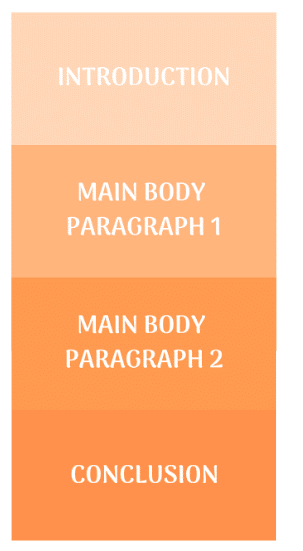
Nearly all of my Task 2 essays follow this basic structure: The sentences you put in each paragraph will depend on what type of question you get.
The five most common IELTS Writing Task 2 questions are:
- Opinion (Agree or Disagree)
- Advantages and Disadvantages
- Problem and Solution
- Discussion (Discuss both views)
- Two-part Question
Below I will outline examples and a structure approved by experienced IELTS teachers and examiners for each type of question. This will help you write a clear, coherent answer and hopefully boost your IELTS band score. I also include an example answer for each type of question so you can see the structure in a real essay.
Please note that these are general structures and may vary slightly depending on the question.
Please also note that no ‘one’ Task 2 essay structure will get you a high score. There are many types of structures that can get you a high score. These are just some I think are effective and easy to learn.
Please visit the lessons below for more detailed guidance on each type of question. I have provided a link at the end of each section.

Opinion Questions (Agree or Disagree)
Typical Question Words –
What is your opinion?
Do you agree or disagree?
To what extent do you agree or disagree?
Direct question.
Example Question –
Some people believe that unpaid community service should be compulsory in high school programmes (for example, working for a charity, improving the neighbourhood or teaching sports to younger children).
Essay Structure
Introduction
1- Paraphrase Question
2- Give your opinion and outline the main ideas.
Main Body Paragraph 1
1- Topic Sentence
2- Explain Topic Sentence
Main Body Paragraph 2
Conclusion
1- Summary of main points and opinion
Student Sample Answer
It is argued that volunteering should be made part of the school curriculum. This essay agrees with that suggestion completely because it help pupils develop soft skills and helps them gain much-needed work experience.
Education should not be limited to strictly academic pursuits, and those in education should also develop life skills, such as teamwork, empathy and self-discipline, and one of the best ways to hone these aptitudes is through community service. Serving those less fortunate than ourselves teaches us many lessons, including how to work with people from other backgrounds and the value of hard work, thus enabling us to hone these skills before becoming an adult. For example, many young people from wealthier countries take a gap year and help those less fortunate than themselves to increase their gratitude for what they have and improve their work ethic.
Many colleges and companies are also increasingly looking for this type of experience. Most school leavers have the same grades, and charitable work can help set you apart from other students when making college applications. For example, Cambridge and Oxford receive thousands of applications from straight-A students yearly and can only accept a small percentage of applicants. What you have done outside the classroom often differentiates you from everyone else and gets you that coveted spot.
In conclusion, teenagers should be made to partake in unpaid work as part of their schooling because it will help them learn things they wouldn’t ordinarily learn from their teachers, and it will also boost their chances of getting into third-level education.
For more detail on how to answer agree or disagree questions, please visit our opinion essay lesson .
Need help writing essays like this? Check out our ESSAY CORRECTION SERVICE .
Advantages and Disadvantages Questions
Typical Question Words
Discuss the advantages and disadvantages.
What are the advantages and disadvantages?
Example Question
Technology is being used more and more in education.
Essay Structure
2- Outline Main Points
Main Body Paragraph 1
1- State Two Advantages
2- Expand/Explain First Advantage
3- Expand/Explain Second Advantage
1- State Two Disadvantages
2- Expand/Explain First Disadvantage
3- Expand/Explain Second Disadvantage

1- Summary of Main Points

Student Sample Answer
It is argued that technology plays an ever-increasing role in schools and universities. Increased access to information and student freedom are the main advantages, whereas dependency on technology and decreasing levels of face-to-face contact are the main disadvantages.
Access to more information and student autonomy are the principal advantages of increasing the use of electronic devices in education. With the internet, students can access all the information available about any topic, regardless of what books and other resources are available in the school. Furthermore, students can focus on whatever topic or subject they want and study it in depth. A prime example of this is the number of online university courses available to students, covering a myriad of subjects that, up until recently, were unavailable to most learners. This has resulted in more people studying third-level degrees than ever before at a pace and schedule that suits them.
The main disadvantages associated with the increasing use of technology in education are the dependency on this technology and the decrease in face-to-face interaction between students. With many students now using the internet as their primary source of information, they often struggle to use other academic resources to find what they’re looking for. As well as this, students spend more time looking at computer screens by themselves than interacting with each other, which is thought to lead to lower levels of emotional intelligence. For instance, the recent explosion in smartphone use has been at the expense of genuine human interaction. This results in soft skills, such as verbal communication and empathy, being affected.
In conclusion, the benefits technology brings to education, such as unrestricted access to information and student autonomy, must be weighed against the drawbacks, such as dependency on this technology and the negative effects on human interaction.
For more detail on how to answer advantage and disadvantage questions, please visit our advantage and disadvantage lesson .
Discuss Both Views Question (Discussion Essay)
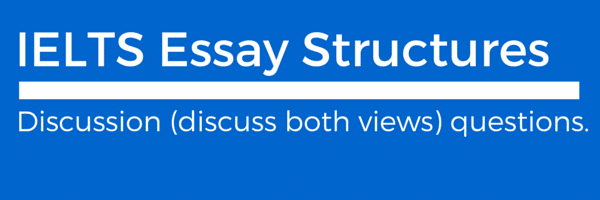
Discuss both points of view and give your opinion.
Example Question
Technology is being used more and more in education. Some people say that this is a positive trend, while others argue that it is leading to negative consequences.
Discuss both sides of this argument and then give your own opinion.
1- Paraphrase Question and/or state both viewpoints.
2- Thesis Statement
3- Outline Sentence
1- State first viewpoint
2- Discuss first viewpoint
3- Reason why you agree or disagree with viewpoint
4- Example to support your view
1- State second viewpoint
2- Discuss second viewpoint
Sentence 1- Summary
Sentence 2- State which one is better or more important
There is an ever-increasing use of technology, such as tablets and laptops, in the classroom. It is often argued that this is a positive development, whilst others disagree and think it will lead to adverse ramifications. This essay agrees that an increase in technology is beneficial to students and teachers.
The Internet has provided students with access to more information than ever before. This has allowed learners to research and learn about any subject at the touch of a button. It is therefore agreed that technology is a very worthwhile tool for education. Wikipedia is a prime example, where students can type in any keyword and gain access to in-depth knowledge quickly and easily.
However, many disagree and feel that technology deprives people of real human interaction. Human interaction teaches people valuable skills such as discourse, debate and empathy. Without these soft skills, many people find it difficult to become successful in work and their personal lives. Despite this, human interaction is still possible through the internet, and this essay disagrees that technology should be dismissed for this reason. For instance, Skype and Facebook allow people to interact in ways that were never before possible.
While the benefits of technology, particularly the internet, allow students to tap into limitless sources of information, some still feel that people should be wary of this new phenomenon and not allow it to curb face-to-face interaction. However, as long as we carefully consider the importance of human interaction in education, the educational benefits are clearly positive.
For more detail on how to answer discussion questions please visit our discussion essay lesson .
Problem and Solution Questions
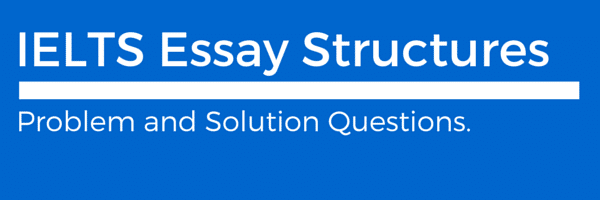
Problem and solution.
Cause and solution.
Students are becoming more and more reliant on technology.
What are some of the problems associated with reliance on computers, and what are some of the possible solutions?
2- Outline Sentence
1- State Problems
2- Explain First Problem
3- Explain Second Problem
4- Example of Second Problem
1- State Solutions
2- Explain First Solution
3- Explain Second Solution
4- Example of Second Solution
Learners are becoming increasingly dependent on technology, such as the Internet and mobile devices. This essay believes the main problems associated with dependence on computers are the lack of original thought and copying original work from others and suggests critical thinking classes and writing analysis software as the most viable solutions.
The principal problems with over-reliance on technology are people being unable to think for themselves and plagiarism. With access to so much information, students often rely on other people’s opinions instead of forming their own. As well as this, they often use search engines to answer a question and copy the text from a website rather than thinking about the question. This practice is prohibited in schools and universities and stunts students’ intellectual development because they will never truly think for themselves, which is what university is supposed to be for. For example, many teachers complain that students copy web pages straight from Wikipedia word for word rather than giving a reasoned answer to their questions.
Solutions to these worrying problems are special classes to focus on critical thinking and teachers using anti-plagiarism software to detect copying. If teachers create situations where students have to infer meaning and express opinions based on a small amount of information, this will ensure that students have an opportunity to develop these skills. Also, if students know that their assignments are being checked for plagiarism, this will be enough to deter them from doing so. For instance, many universities already use this kind of software to scan coursework for plagiarism, and it could be extended to include all homework by learners in both secondary and tertiary education.
In conclusion, the main problems with the overuse of technology in education are the lack of original thought and plagiarism. These can be solved through special classes that teach students analytical skills and plagiarism detection software.
For more detail on how to answer problem and solution questions please visit our problem and solution lesson .
Two-Part Questions
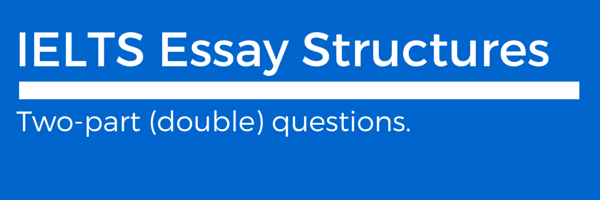
There will normally be a statement, and they will then ask you to answer separate questions.
As most people spend a major part of their adult life at work, job satisfaction is an important element of individual wellbeing.
What factor contributes to job satisfaction?
How realistic is the expectation of job satisfaction for all workers?
2- Outline Sentence (mention both questions)
1- Answer first question directly
2- Explain why
3- Further explain
1- Answer second question directly
As most adults spend most of their time at work, being content with your career is a crucial part of a person’s health and happiness. This essay will first suggest fair pay as a key element leading to job satisfaction, and it will then state that it is not very likely that everyone can be happy with their job.
The most important thing that satisfies someone at work is being compensated fairly. If those more senior than you respect you as a person and the job you are doing, then you feel like you are valued. A fair salary and benefits are important marks of respect, and if you feel you are being underpaid, you will either resent your bosses or look for another job. These two factors came top of a recent job satisfaction survey conducted by Monster.com, which found that 72% of people were pleased with their current role if their superiors regularly told them they were appreciated.
With regard to the question of happiness for all workers, I think this is and always will be highly unlikely. The vast majority of people fail to reach their goals and end up working in a post they don’t really care about in return for a salary. This money is just enough to pay their living expenses which often means they are trapped in a cycle of disenchantment. For example, The Times recently reported that 89% of office workers would leave their jobs if they did not need the money.
In conclusion, being satisfied with your trade or profession is an important part of one’s well-being, and respect from one’s colleagues and fair pay can improve your level of happiness; however, job satisfaction for all workers is an unrealistic prospect.
Can I get a band 8 or 9 following these structures?
Nobody can give you a Task 2 IELTS structure that guarantees high scores. Your score is dependent on how good your grammar and vocabulary are and how well you answer the question. A good structure will help you answer the question to some extent and boost your score for coherence and cohesion, but you must use relevant ideas and use these ideas well to answer the question.
You can see how my student scored a Band 8.5 in IELTS Writing here:

Next Steps
We hope you found those IELTS Writing Task 2 structures useful. Looking for some more sample questions? Here are over 100 sample questions from past exam papers.
If you would personalised feedback and guidance until you get the score you need, you can join the Waiting List for my VIP Course here.
About Christopher Pell
My name is Christopher Pell and I'm the Managing Director of IELTS Advantage.
I started IELTS Advantage as a simple blog to help 16 students in my class. Several years later, I am very humbled that my VIP Course has been able to help thousands of people around the world to score a Band 7+ in their IELTS tests.
If you need my help with your IELTS preparation, you can send me an email using the contact us page.
IELTS Mentor "IELTS Preparation & Sample Answer"
- Skip to content
- Jump to main navigation and login
Nav view search
- IELTS Sample
Vocabulary for Academic IELTS Writing Task 2 (part 2)
Generally...... generally speaking...... in general...... overall...... all in all...... by and large...... basically...... as a rule...... essentially...... on the whole...... all things considered......, if...... provided that...... because of that...... for this reason...... unless...... providing that...... so that...... in case...... whether......., i quite agree that...... i strongly agree...... i completely agree that...... i totally agree with the given idea that...... i agree with the opinion that...... i am quite inclined to the opinion that...... i could not agree more...... i concur with the group who believe that...... i accept that...... i accept the fact that...... i approve of the idea...... i am in agreement...... i consent that......, i disagree with the opinion that...... i strongly disagree....... i completely disagree with....... i totally disagree with the given idea that....... i disagree with the statement....... i quite oppose the opinion that....... i disapprove that....... i totally do not accept the fact that....... my own opinion contradicts....... i disagree with the group of people....... however, my opinion is different......., to some extent…... in a way…... i agree with the given statement to some extent…... up to a point, i agree…... more or less…... so to speak…..., certainly….... definitely….... no doubt….... of course….... doubtlessly….... without any doubt….... undoubtedly…...., in addition….... and….... moreover….... similarly….... furthermore….... also….... as well as….... besides….... even….... too….... what’s more….... again….... in a similar fashion….... likewise…...., first/ firstly….... second/ secondly….... third/ thirdly….... last/ lastly….... then..….. at the same time….... meanwhile….... since….... as soon as….... after this / that….... before….... after….... afterwards ...... during….... while….... simultaneously….... following this….... when…..., «prev vocabulary - writing task 2 (part 1) next vocabulary - writing task 2 (part 3) ».
- IELTS Vocabulary
IELTS Materials
- IELTS Bar Graph
- IELTS Line Graph
- IELTS Table Chart
- IELTS Flow Chart
- IELTS Pie Chart
- IELTS Letter Writing
- IELTS Essay
- Academic Reading
Useful Links
- IELTS Secrets
- Band Score Calculator
- Exam Specific Tips
- Useful Websites
- IELTS Preparation Tips
- Academic Reading Tips
- Academic Writing Tips
- GT Writing Tips
- Listening Tips
- Speaking Tips
- IELTS Grammar Review
- IELTS Cue Cards
- IELTS Life Skills
- Letter Types

- Privacy Policy
- Cookie Policy
- Copyright Notice
- HTML Sitemap

300+ Vocabulary List for IELTS + PDF (updated 2024)
In this article, we have compiled the best list of vocabulary words for the IELTS exam. A strong IELTS vocabulary is key to achieving a high score in your exam. The easiest way to improve your vocabulary is to learn synonyms for common English words.
Synonym words are awesome way to get a great score in IELTS exam. These word pairs organized for reading and writing section.
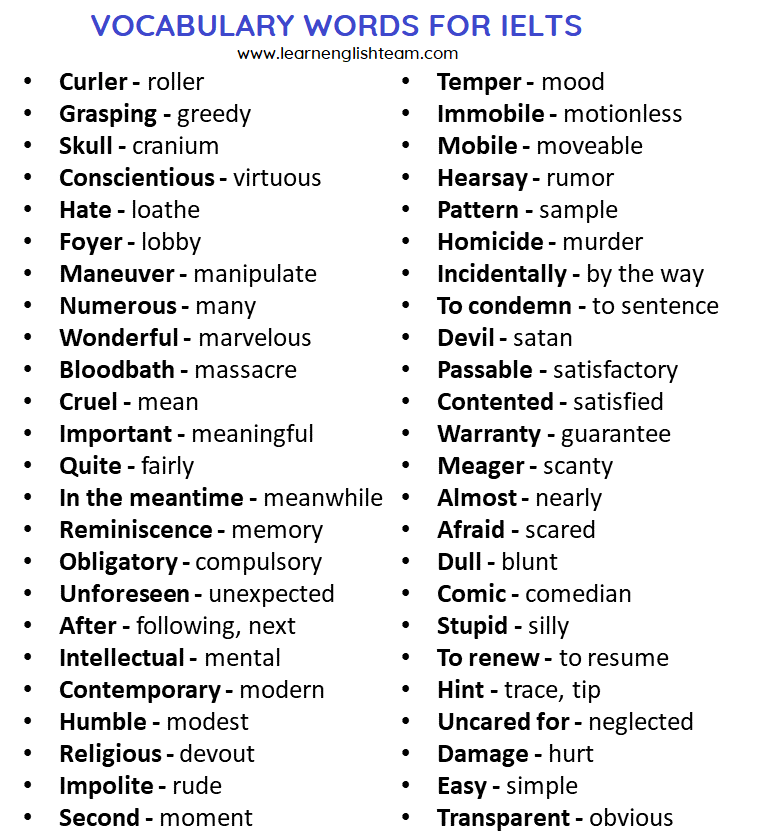
Check Also: 200+ IELTS Academic Word List & Examples and PDF Essay Writing Tips & How to Avoid Typical Mistakes 2000+ Common Phrasal Verbs List From A-Z (Free PDF) IELTS Synonyms Words List A to Z + PDF
Vocabulary Words for IELTS List 1
Here is the first list of IELTS vocabulary words with their synonyms:
| innocent | |
| insane | |
| famous | |
| insanity | |
| haughty | |
| terrible | |
| to deny | |
| to differ | |
| correct | |
| vestry | |
| terrible | |
| excessive | |
| comfortable | |
| trashcan | |
| insight | |
| guarantee | |
| instant | |
| intellect | |
| indistinct | |
| comprehensible | |
| undeniable | |
| fright | |
| intellectual | |
| dice | |
| isolated | |
| timely | |
| tip | |
| deprived | |
| ample | |
| to misunderstand | |
| jeans | |
| join | |
| joy | |
| justice of the peace | |
| keen | |
| knowing | |
| campaign | |
| to set up | |
| impartial | |
| ferocious | |
| interaction | |
| to abandon | |
| landing | |
| indirect | |
| to achieve | |
| cannabis | |
| to shut | |
| faulty | |
| impish | |
| inactive | |
| lazy | |
| blustering | |
| to reveal | |
| loiter | |
| lonely | |
| lost | |
| dull | |
| lucky | |
| rumor | |
| lying | |
| magnificent | |
| main | |
| mainly | |
| militant | |
| midday | |
| indistinct | |
| mishap | |
| misinterpret | |
| misleading | |
| missing | |
| envious | |
| mistrust | |
| mistaken | |
| absent | |
| to inform | |
| model | |
| risky | |
| drain | |
| distress | |
| neutral | |
| neutral | |
| to act | |
| flexible | |
| additional |
Vocabulary List for IELTS 2
Here is the second list of IELTS vocabulary words with their synonyms:
| to manage | |
| assassin | |
| to preserve | |
| fair | |
| fragrant | |
| debate | |
| aspiring | |
| to predict | |
| to disregard | |
| advantage | |
| to manage | |
| considerable | |
| unpleasant | |
| nonsense | |
| to affect | |
| awful | |
| to refer to | |
| cross | |
| waterproof coat | |
| notebook | |
| intermediary | |
| notes | |
| notorious | |
| fun | |
| choice | |
| to tremble | |
| nowadays | |
| loathe | |
| unkind | |
| defile | |
| obstacle | |
| interpretation | |
| antagonistic | |
| to operate | |
| obvious | |
| consolation | |
| unspoken | |
| huge, immense | |
| honest | |
| faulty | |
| out of date | |
| overhead | |
| entire, | |
| pair | |
| particularly | |
| boring | |
| to rush | |
| passion | |
| intestine | |
| duplicate | |
| conceited | |
| unfaithful | |
| accomplish | |
| to irritate, to bother | |
| clumsy | |
| totally | |
| to raise, to promote | |
| bankrupt | |
| to regret | |
| fundamental | |
| peaceful | |
| dusk | |
| good | |
| dense | |
| peak | |
| empty | |
| perfume | |
| perhaps, possibly | |
| help, assist | |
| poor, naughty | |
| conjurer | |
| unlucky | |
| headstone | |
| burglary | |
| to seize | |
| chorus | |
| to vanish | |
| portray | |
| postpone | |
| directions | |
| powerful | |
| precedence | |
| fixed | |
| compliment | |
| unbearable | |
| preceding | |
| precisely | |
| distrust | |
| premature | |
| premature | |
| provoke | |
| quotation | |
| disobedient | |
| corny, tacky | |
| vast | |
| gap | |
| expand | |
| deadly | |
| exempt | |
| grieve | |
| forbid | |
| rare | |
| automatic | |
| to quote | |
| raw | |
| reach, come | |
| dismal | |
| illegal | |
| deliberately | |
| reasonably | |
| rebel | |
| rebellion | |
| receptionist | |
| depressing | |
| healing | |
| fairness | |
| inexperienced | |
| crafty | |
| virtually | |
| aware | |
| to reach | |
| evident | |
| criminal | |
| voiceless |
Vocabulary Words for IELTS List 3
Here is the third list of IELTS vocabulary words with their synonyms:
| inattentive | |
| to distinguish | |
| substandard | |
| succeed | |
| grasp | |
| to appoint | |
| to approach | |
| to affect | |
| constitution | |
| unusual | |
| successive | |
| sullen | |
| differ | |
| bill | |
| to resist | |
| intolerable | |
| assembly | |
| to communicate | |
| to privatize | |
| summary | |
| appealing | |
| intolerant | |
| to overtake | |
| besides | |
| to reply | |
| summary | |
| arid | |
| to play down | |
| convinced | |
| useless | |
| to comply | |
| clash | |
| tornado | |
| to drift | |
| intuition | |
| to confess | |
| to heighten | |
| fascinating | |
| lenient | |
| lesser | |
| to contaminate | |
| to hoover | |
| detachable | |
| sunset | |
| delight | |
| support | |
| lesson, course | |
| to conquer | |
| disturbance | |
| to convert | |
| to corrupt | |
| to cut | |
| to decrease | |
| to entail | |
| to exaggerate | |
| fidelity | |
| decoration | |
| curtail | |
| worthless | |
| disgusting | |
| lethargic | |
| immediate | |
| to function | |
| huge | |
| to examine | |
| to gather | |
| reckless | |
| to get | |
| generous | |
| anonymous | |
| to mix up | |
| abroad | |
| to infer | |
| elevated | |
| recover | |
| external | |
| to give up | |
| increasingly | |
| to grumble | |
| to guarantee | |
| support | |
| hairstyle | |
| brow | |
| reduction | |
| to seem | |
| apart from | |
| to outlive | |
| drifting | |
| lifeless | |
| however | |
| a local | |
| to imagine | |
| casual | |
| to start | |
| enrage | |
| lively | |
| refrain | |
| essential | |
| if | |
| regret | |
| cultivate | |
| regular | |
| testimony | |
| whether | |
| relevant | |
| hard | |
| reliable | |
| repair | |
| ethical | |
| the aristocracy | |
| reputation | |
| condense | |
| unharmed | |
| crucial | |
| weaken, thin | |
| affluent | |
| to manufacture | |
| fair | |
| loafer | |
| required | |
| restrain | |
| file | |
| clear | |
| total | |
| distinct | |
| behind, bottom | |
| to reply | |
| domestic | |
| things | |
| right | |
| forehead | |
| the rest | |
| thing | |
| airtight | |
| to memorize | |
| thoughtful | |
| thoughtful | |
| important | |
| thoughtless | |
| foolish |
IELTS Words with Meaning List 4
Here is the fourth list of IELTS vocabulary words with their synonyms:
| to assess | |
| considerably | |
| unsafe | |
| corridor | |
| vinaigrette | |
| to blow up | |
| to break down | |
| to build up | |
| furious | |
| comment | |
| tremble | |
| rigid | |
| to choose | |
| highlight | |
| to clarify; to light up | |
| catastrophe | |
| to come across | |
| to stress | |
| harmless | |
| indisputable | |
| embarrass | |
| attractive | |
| to question | |
| cold | |
| tough | |
| doubtful | |
| dependable | |
| fabric | |
| childish | |
| to suppose, to assume | |
| intelligent | |
| intentionally | |
| final | |
| courageous | |
| vineyard |
IELTS WORDS LIST PDF DOWNLOAD
You May Also Like

Top Mistakes to Avoid When Taking an Online English Test

Present Perfect Simple and Progressive Tense Comparison (PDF)

How to Use Idioms in Your Essays
love the words but correction=
- terrror = fright
- Skip to main content
IELTS Podcast
Pass IELTS with expert help.
35 Sample Band 9 IELTS Essays
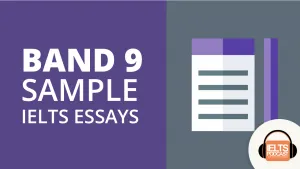
Take a look at these 35 sample Band 9 IELTS essays for writing task 2 of the IELTS exam . Task 2 can cover a wide range of essay topics for the IELTS writing task section of the test, so preparation is key. Use the following samples when preparing your IELTS essays to see how close you are to a band 9!
These IELTS band 9 essay samples will help you highlight your mistakes and improve your writing band 9 level.
See the below IELTS essay writing sample questions and answers to practice for your IELTS writing task 2 .
You will find the IELTS essay questions and answers categorised by the following essay types.
- Do you agree/disagree
- Discuss both views and give your opinion
- Discuss the advantages and disadvantages
- Discuss the problems and possible solutions
- Is this a positive or a negative development
For a FREE ebook of our top 10 IELTS Band 9 essay samples in PDF, click here!
1. agree or disagree .
- Some people believe that technology has made man more social. To what extent do you agree or disagree with this opinion?
- Some people think that a person improves their intellectual skills more when doing group activities. To what extent do you agree? Use specific details and examples to explain your view.
- In some countries, the number of shootings increase because many people have guns at home. To what extent do you agree or disagree? Give specific reasons and examples to support your answer.
- Some people believe that international sporting events are the ideal opportunity to show the world the qualities of the hosting nation. Others believe that these events are mainly a large unjustifiable expense. To what extent do you agree or disagree?
- Crime is a big problem in the world; many believe that nothing can be done to prevent it. To what extent do you agree or disagree? Give your own opinion.
- Doing an enjoyable activity with a child can develop better skills and more creativity than reading. To what extent do you agree? Use reasons and specific examples to explain your answer.
- Improvements in health, education and trade are essential for the development of poorer nations. However, the governments of richer nations should take more responsibility for helping the poorer nations in such areas. To what extent do you agree?
- Advances in health and biology and other areas of society in the last 100 years have transformed the way we live as well as postponing the day we die. There is no better time to be alive than now. To what extent do you agree or disagree with this opinion?
- The world is consuming natural resources faster than they can be renewed. Therefore, it is important that products are made to last. Governments should discourage people from constantly buying more up-to-date or fashionable products. To what extent do you agree with this statement?
- Some people believe that children’s leisure activities must be educational, otherwise, they are a complete waste of time. Do you agree or disagree? Give reasons for your answer and include any relevant examples from your experience.
- Many governments in the world spend large amounts of money on art, which helps to improve the quality of people’s lives. However, governments should spend money on other things rather than art. Do you agree or disagree? Give your opinion.
2. Discuss both views and give your point of view?
- NEW SEPTEMBER 2022: Some people believe that professionals such as doctors and engineers should be required to work in the country where they did their training. Others believe they should be free to work in another country if they wish. Discuss both these views and give your own opinion.
- Nowadays most green energy is becoming evermore prevalent in both developed and developing countries. Some argue they greatly reduce costs and are better for the environment, others believe they are a serious threat to energy security. Discuss both views and give your opinion.
- Some people are of the opinion that children should be rewarded for good behaviour. Others think they should be punished for bad behaviour. Discuss both views and give your personal opinion and reasons.
- Some people think that keeping pets is good for children while others think it is dangerous and unhealthy. Which opinion do you agree with? Discuss both options and give examples .
- Some people think that secondary school children should study international news as one of the school subjects. Other people think that it is a waste of valuable school time. What do you think? Give reasons for your answer and include any relevant examples from your own knowledge or experience.
- Some products can be made quickly by a machine. Other items take a long time to be made by hand. As a buyer, which do you prefer and why? Give specific details and examples in your answer.
- Some people think women should be given equal chances to work and excel in their careers. Others believe that a woman’s role should be limited to taking care of the house and children. Which opinion do you agree with and why? Include specific details and examples to support your choice.
- Most schools are planning to replace sports and exercise classes with more academic sessions. How will this change affect children’s lives in your view?
- Some people think that schools have to be more entertaining, while others think that their sole purpose is to educate. Which do you agree with? Use specific reasons and examples to support your opinion.
- Some people think that it is acceptable to use animals in medical research for the benefit of human beings, while other people argue that it is wrong.
- Should humans adapt to technology or should technology be adapted to us? Is technology making us intellectually weaker or more intelligent?
- Do copyright laws limit creativity or reward it? Would society function better without such rules and regulations?
- Should education and healthcare be free of charge and funded by the government, or should it be the responsibility of the people to pay for these services? Discuss the above and give your opinion using examples.
3. Discuss the advantages and disadvantages
- Is it good for children to start using computers from an early age and spend long hours on them? Discuss the advantages and disadvantages.
- Some people think high school graduates should travel or work for a period of time instead of going directly to study at university. Discuss the advantages and disadvantages of both approaches. Give reasons for your answer and include any relevant examples from your own knowledge or experience.
4. Two questions, for example: Why is this happening? Is this a positive or negative development?
- These days some people spend a lot of money on tickets to go to sporting or events. Do you think this is a positive or negative development ?
- Some people like to travel outside their country. Others would rather travel to tourist spots in their own country first, before travelling abroad. Which do you prefer to do and why? Include specific details and examples to support your choice.
- Women can do everything that men can and they even do it better. They also can do many things that men cannot. But it is a fact that their work is not appreciated as much as men’s, although they have to sacrifice a lot for their family and career… It is said: “A woman’s place is in the home.” What do you think?
5. Discuss the problems and possible solutions OR discuss the causes and what problems it causes?
- People are using a lot of online language translation apps. Do the benefits of this outweigh the disadvantages?
- Obesity is a serious problem in many countries, especially in rich countries. Discuss ways to solve the problem. Provide specific reasons and examples to support your answer.
- Today, the quality of life in large cities is decreasing. Discuss the causes and solutions.
- Research shows that global warming is caused by human activity. What are the possible effects of climate change and what can governments and individuals do to reduce these?
- In many countries, recently young single people have been living far from their parents, from the time they began studies or work and until they married. Do you think there are more advantages or disadvantages to this trend?
- Traditional schooling is out of date, boring and stifles a child’s natural talents, various professionals have pushed for an education revolution. Are there alternatives in the education system? Is traditional education doing more harm than good?
Take a look at some of our writing tasks to help you prepare for your IELTS exam , and if you need more help, we have a course that is guaranteed to help you pass IELTS. Practicing IELTS writing task 2 essays is very important for your exam preparation.
Video: IELTS Band 9 Writing Sample – Body Paragraphs
Click here for a FREE ebook of our top 10 IELTS Band 9 samples for writing task 2 in PDF,
For more preparation, take a look at our latest tutorials:.
- Band 9 Model Essay and Vocabulary-Cryptocurrency
- Sample task 2 questions
- Sample Band 9 Essay: Children and Education
- Sample Answers: discuss the advantages and disadvantages
- How to get ideas for task 2
- Full guide to academic collocations
- How to write a agree/disagree essay
- IELTS Writing Task 2: advantages and disadvantages questions
For a FREE ebook of our top 10 sample essays, click here!
Enhance Your Essays with Our Efficient Online IELTS Essay Checker
Practicing for IELTS Writing Task 2? You’re in the right place. But after you practice, how can you know if your essay is good? We have a tool to help! It’s called the online IELTS essay checker .
You can find it here . This tool is very easy to use. You write your essay, and our tool checks it. It tells you what mistakes you made and how to fix them. This means you can learn and get better faster. The best part? You save money.
Many students pay a lot for IELTS classes or teachers to check their essays. But our online IELTS essay checker is cheaper and works fast. You don’t have to wait! So, after you read the sample essays on this page, use our online IELTS essay checker .
It can help you see where you can do better. And it’s a good way to get ready for the IELTS exam without spending a lot of money. So, if you want to write better essays and save money, try our online IELTS essay checker .
We made it for students like you. We hope it helps you get the score you want.
Frequently Asked Questions (FAQ)
How to score band 9 in ielts writing.
You can score band 9 in IELTS writing by following these steps:
- Make sure you understand the question and answer what is being asked.
- Plan out your essay before you start writing
- Write your essay, review it and then “rewrite” it .
- Get feedback on your essays and find out where you may be losing points.
- Improve your language skills.
Read this post for more tips.
How do you write a 9 band essay?
Practice each essay type and be clear about the criteria for a perfect score. Basically, you need clear formal paragraphing, an essay that ‘flows’ logically and stays focused on the question, which is answered fully with high-level vocabulary and near-perfect grammar.
How can I get 9 in IELTS writing?
Look at model answers and memorize phrases that work for most essays – ‘In the modern world’ is a great way to start. A focus on global issues and international examples rounds out your answer and practice timed essays before the test.
Can you get 10 in IELTS?
No, the top band score is a 9. Be realistic though, some of the best universities in the world require a band 7 or 7.5 for their most challenging courses so a perfect score isn’t necessary in most situations.
- Phone: +91 8466016171
- Whatsapp: +91 8208375580
- Email: contact@leapscholar.com
IELTS Writing Task 1 Map Vocabulary: Sample Answers & PDF
- Last Updated On August 21, 2024
- Published In General
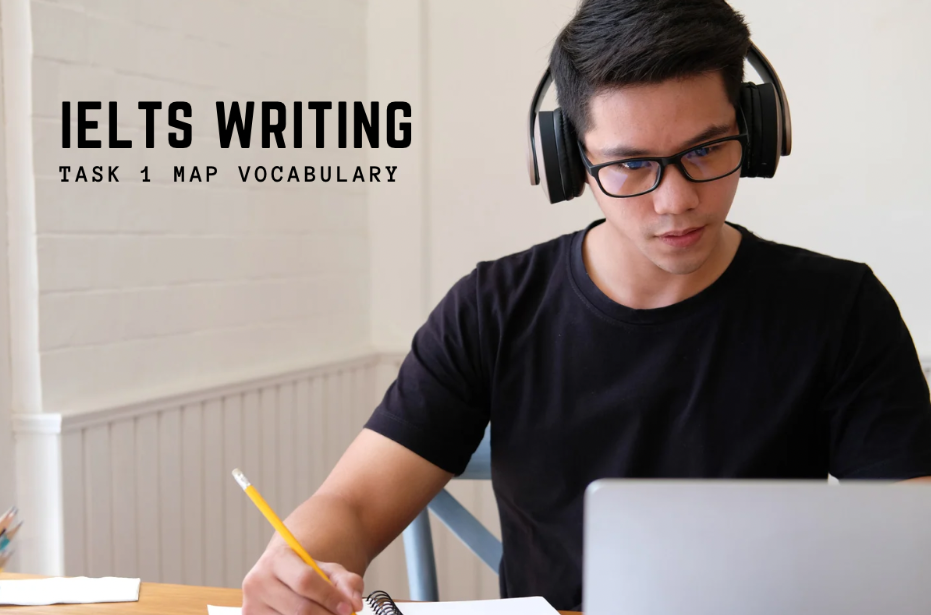
Maps have been humanity’s silent guides, charting courses from uncharted lands to bustling cities. Now, they’ve become a challenge in the path to IELTS success .
Table of Content
With the average IELTS writing score hovering around 7.0 in 2024 , mastering the art of map description is essential. To transform geographical data into compelling prose, you need more than just direction — you need the language of a map expert.

Excel in IELTS with India’s Top Online Coaching
Leap has helped more than 1 Lakh students achieve 7+ IELTS band.
In this blog, you’ll explore essential IELTS writing task 1 map vocabulary words that can help you improve your descriptions and boost your overall writing score. Using the right terms and phrases ensures that your map descriptions are detailed, accurate, and aligned with the standards needed to achieve a score of 7.0 or higher.
Want to ace IELTS writing task 1 map vocabulary? Dive in!
Key Highlights
Here is a table detailing this blog’s key points that will help you ace the IELTS writing task 1 map vocabulary.
| Before and After, Proposed Changes, Comparative Maps | |
| North, South, Adjacent to for precise location descriptions | |
| Words like: ‘expanded,’ ‘reduced,’ and ‘transformed’ | |
| Incorrect tense usage, Repetition of words |
What is IELTS Writing Task 1 Map Vocabulary?
In IELTS writing task 1, map vocabulary plays a crucial role as it helps you accurately describe the changes and features shown in different maps. Your ability to use precise terms like “ constructed ,” “ demolished ,” and directional phrases like “ north of ” or “ adjacent to ” is essential for achieving a high score.
This vocabulary is assessed under the Lexical Resource criterion, one of four areas, along with Task Achievement, Coherence and Cohesion, and Grammatical Range and Accuracy. Each contributes 25% to your overall Task 1 score.
Here is a table that outlines the key types of vocabulary used in IELTS Writing Task 1 map descriptions:
| North, south, adjacent to | |
| Constructed, demolished, expanded | |
| Converted into, replaced by |
These terms help you convey the map’s details clearly and concisely, which is crucial for achieving a high score.
Types of Map Charts in IELTS Writing Task 1
Familiarising yourself with the common map chart types will enhance your ability to effectively apply IELTS writing task 1 map vocabulary in your response.
Here are some of the most frequently encountered map types in this task.
- Before and After Maps : These maps highlight how a specific area has changed, showing developments or transformations.
- Proposed Changes Maps : These maps depict plans for an area, such as new infrastructure or urban development projects.
- Comparative Maps : These maps compare locations or areas, highlighting their similarities and differences.
- Single Time Point Maps : These maps present the layout of a place at one specific moment, offering a snapshot of that location.
- Tourist or Transport Maps : These maps focus on key tourist attractions, transportation routes, or other thematic elements related to travel and navigation.
Also Read: Personality Vocabulary IELTS: About People & Personalities
IELTS Writing Task 1 Map Vocabulary: Key Terms
The overall average IELTS score for 2024 is reported to be 7.5 , emphasising the need for precise language skills, particularly in specific tasks like map descriptions. Mastering IELTS writing task 1 map vocabulary is crucial for accurately conveying changes, locations, and features in map-based tasks.
This section outlines essential terms and phrases to enhance your ability to describe maps effectively, helping you align with the high standards reflected in the current average IELTS scores.
Below are tables of key terms, each with an explanation of the key terms and their usage.
1. Regions and Directions
Regions and directions are essential for accurately locating features on a map. These terms help describe the geographical placement of different elements.
Here is a table outlining key vocabulary for regions and directions.
| North, South, East, West | Basic cardinal directions on the map. |
| To the north/south/east/west | Specifies a feature’s position relative to others. |
| Northeast, Southeast, Southwest, Northwest | Provides precise intercardinal directions. |
Explore all countries
2. adverbs and prepositions.
Adverbs and prepositions are crucial for describing the relative positions and movements of features on the map.
Here is a table of important adverbs and prepositions used in map descriptions:
| To the left of, To the right of | Indicates position relative to another feature. |
| Upstairs, Downstairs | Specifies vertical position for multi-floor maps. |
| Clockwise, Anticlockwise | Describes movement or orientation around a central point. |
| In the middle of, In the centre of | Highlights central placement within the map. |
| Inside, Outside | Specifies whether a feature is within or outside a boundary. |
Nouns identify various features and areas on a map, helping to categorise and describe different elements clearly.
Here is a table of key nouns used in IELTS map descriptions:
| Housing area, Residential area, Sleeping area | Refers to zones designated for living spaces. |
| Entrance, Doorway | Entry points to buildings or areas. |
| Edge, Boundary, End, Fringe | Describes the outer limits of an area. |
| Crossroad, Intersection, Junction | Points where roads or paths meet or cross. |
| Site, Place, Location | General terms for specific spots on the map. |
| Area, Field, Zone | Broad terms for larger sections of the map. |
4. Verbs to Describe Changes
Verbs describe actions, movements, or changes in features on the map. They are key to detailing developments over time.
Here is a table listing important verbs for describing changes on maps.
| Build, Construct | Indicates the creation of new structures. |
| Extend, Expand | Describes the enlargement of existing features. |
| Remove | Refers to the elimination of structures. |
| Is located, Is situated, Lies, There is | Describes the static position of a feature. |
| Go up, Go down | Indicates vertical movement or position change. |
| Start by | Refers to the initiation point of a feature or process. |
| Cross, Pass over, Cut across | Describes movement from one side to another. |
5. Paraphrases for Maps
Paraphrases offer alternative expressions to add variety and avoid repetition in your map descriptions .
Here is a table of common paraphrases used in IELTS Writing Task 1 maps.
| Town centre | City centre, Center of the town |
| Road | Street |
| Housing area | Residential area |
| Is located | Is situated, Lies, Is |
Most Commonly Used IELTS Map Vocabulary in 2024
Writing Task 1 of the IELTS Academic test often includes a map description, a task you may find challenging. In this task, you need to describe the given map in a clear, well-organised essay of at least 150 words.
To maximise your score, it’s important to avoid repetition and demonstrate a broad range of vocabulary.
To help you prepare, here’s a list of commonly used IELTS map vocabulary that can help you aim for a Band 9 in Writing Task 1.
| Changed from one use or purpose to another. | |
| To separate from a route or path and go in a different direction. | |
| Raised or situated above the ground level. | |
| Made larger or expanded in size. | |
| Lengthened in space or time. | |
| Made level or even, removing elevation. | |
| To cross or pass through, typically referring to roads or paths. | |
| Separated from others, placed apart. | |
| A road or path that curves back on itself, forming a loop. | |
| Combined or joined together. | |
| Changed or altered slightly to improve or adapt. | |
| A body of water that can be travelled by ships or boats. | |
| Positioned at a distance from something else, not aligned. | |
| A bridge or road that crosses over another road or railway. | |
| A route or track between two places, typically narrower than a road. | |
| The outer boundary or edge of an area. | |
| Rearranged or changed the layout or structure. | |
| Moved to a different place. | |
| Taken away or eliminated. | |
| Substituted with something else. | |
| Reduced in size or amount. | |
| Extended across a distance or space. | |
| Beneath the surface of the ground. | |
| Made wider, increased in width. |
Example Sentences for IELTS Writing Task 1 Map Descriptions
When describing maps in IELTS writing task 1, using varied and precise vocabulary is key to conveying changes and locations effectively.
Below are some example sentences that illustrate how to use map vocabulary correctly. These examples will help you understand how to describe various features and developments on a map with clarity and detail.
- The hospital is located on the southeast side of the road.
- In that year, there was a significant decrease in rainfall.
- Over time, the village had steadily developed.
- The trees underwent rapid growth.
- During these years, the buildings were expanded.
- There was a shop positioned in the middle of the street.
- A roundabout was developed at the junction of the road.
- The depth of the pond was over 20 metres.
Structure for IELTS Writing Task 1 Map Questions
A clear and organised structure is crucial for effectively communicating your analysis when tackling IELTS writing task 1 map questions. Using precise IELTS writing task 1 map vocabulary is essential for accurately describing changes, locations, and developments over time.
Below is a detailed structure that will help you approach these questions systematically.
- Introduction : Start by paraphrasing the prompt. Mention the key features on the maps, such as the periods, the areas involved, and any significant changes that stand out.
- Overview : Provide a broad summary of the main features or trends. Highlight general changes, like urbanisation or expansion, without delving into specifics. This sets the stage for a more detailed analysis.
- Main Body Paragraphs : Break down 6-8 significant changes in detail. Use a variety of tenses to describe past, present, and future developments. Specify locations and directions, utilising precise IELTS writing task 1 map vocabulary words such as “north of,” “adjacent to,” and “demolished.”
Read more about IELTS Academic or General: Which is the Easiest Test?
Common Features of Map Charts in IELTS Writing Task 1
In IELTS writing task 1, various symbols and icons represent different map features and changes. Understanding these symbols is key to accurately describing the map’s details.
Here is a table detailing the various icons and how to translate them into your essay seamlessly:
| Square/Rectangle | Buildings such as houses, schools, or commercial structures | |
| Circle | Towers, roundabouts, or public facilities | |
| Solid Line | Main roads or streets | |
| Dashed Line | Footpaths, secondary roads, or proposed roads | |
| Tree Icon | Parks, forests, or green spaces | |
| Wave Lines | Rivers, lakes, or coastal lines | |
| Mountain/Hill Icon | Elevated land or mountainous areas | |
| Bus/Train Icon | Bus stops, train stations, or transport hubs | |
| Airplane Icon | Airports or airstrips | |
| Playground/Sports Icon | Playgrounds, sports fields, or recreational areas | |
| Swimming Pool Icon | Swimming pools or water parks | |
| Bridge Icon | Bridges over rivers or obstacles | |
| Tunnel Icon | Tunnels through mountains or other areas |
Also Read: IELTS Connectors and Linking Words for 2024
IELTS Writing Task 1 Map – Band Score 8.5 Sample
Achieving a Band 8.5 in IELTS writing task 1 requires exceptional precision and clarity, especially when describing maps. Mastery of IELTS writing task 1 map vocabulary is crucial for effectively communicating changes, locations, and developments.
This Band 8.5 sample showcases how to expertly use map vocabulary to create a detailed and accurate description for IELTS Writing Task 1.
The maps below show the town of Stokeford in 1930 and 2010. Write a report of at least 150 words, summarising the main features and making comparisons where relevant.

Sample Answer
Here is a sample answer to the above question.
The two maps illustrate how Stokeford changed between 1930 and 2010. The main point of the city was its transformation from rural to urban areas, along with the increased infrastructure and the disappearance of farmland.
In the year 1930, the town was a farmland area with a large number of livestock located both in the southwest and the northeast. There were two shops and a post office in the west, with a primary school just on the east of the road and an individual big house with gardens between the north and south of the area. During the next 80 years, the town saw several significant changes. The most noticeable is that all of the farmland areas were transformed into a housing area, where the two shops were demolished, and several houses were built along with two connecting roads in the northwest and northeast.
Moreover, the large house and the gardens were knocked down, and several retirement houses were built in 2010. In contrast, only the bridge, the post office, and the River Stoke remained in the exact same condition for 80 years, although the primary school was added with two retirement houses in 2010.
Our blog post on IELTS Writing Task 1 Map provides further details on how to structure your answer for writing task 1.
Are you still feeling confused and need an IELTS masterclass that teaches everything from the ground up? Or do you need a refresher course?
Join LeapScholar’s IELTS Masterclasses and get trained by the best in the country! Our expert-led classes offer live sessions, module-specific training, personalised guidance, and endless practice opportunities. Don’t just prepare — master the IELTS with us.
Reserve a FREE SEAT and take the first step towards your dream score!
IELTS Writing Task 1 Map Vocabulary: Grammar Tips
Precision in vocabulary and grammar is crucial for success in IELTS Writing Task 1, particularly when describing maps.
Choosing the correct tense is key to accurately describing the changes and features shown in maps. Here’s how to effectively use language in your map descriptions.
- Present simple tense is ideal for describing the current layout of a map.
Example: “A library stands in the centre of the town.”
- Past simple tense is used to describe past states or changes.
Example: “The area was a vast forest in 1980.”
- The present perfect tense is useful for describing developments that have occurred up to the present.
Example: “The village has expanded considerably in the past decade.”
- Future simple tense should be used for proposed or planned changes.
Example: “A new highway will be built along the city’s northern edge.”
- The past perfect tense is applied when describing changes that happened before another event in the past.
Example: “By 2005, the old market had been replaced by a shopping mall.”
Strategies for Tackling Map Charts in Task 1
You should begin by closely examining the map provided. Identify significant changes or differences between the maps and consider periods, symbols, and icons.
Read below on how you can expertly proceed from here to craft a high-score-worthy essay answer.
1. Planning Your Response
Carefully plan your response by grouping related information based on similar locations or directions. This will help you create a logical and coherent description.
2. Writing Your Response
Structure your writing into the following three clear sections:
- Introduction : Paraphrase the task statement and briefly overview the maps.
- First Body Paragraph : Describe the features of the initial map, focusing on key elements.
- Second Body Paragraph : Compare the maps, highlighting major changes such as new constructions, removals, or modifications.
To Conclude
Mastering IELTS writing task 1 map vocabulary is essential for achieving a high score, especially with the overall average IELTS score for 2024 being 7.5.
By using precise directional language, descriptive terms, and correct verb tenses, you can effectively convey the changes, locations, and developments shown on maps, making your descriptions clear and accurate.
Elevate your IELTS preparation with LeapScholar! Get top-tier training from the best instructors, with live classes, tailored module-specific lessons, and personalised support. Whether it’s practice tests or doubt-solving sessions, we’ve got you covered.
Frequently Asked Questions
Q. what is ielts writing task 1 map vocabulary and why is it important.
A. IELTS Writing Task 1 Map vocabulary refers to the specific words and phrases used to describe maps in the IELTS exam. This vocabulary is crucial because it helps you accurately convey changes, locations, and developments in map-based tasks, which can significantly impact your score. Mastery of this vocabulary allows for clearer, more precise descriptions.
Q. How can directional language improve your IELTS maps vocabulary?
A. Directional language, such as “north,” “south,” “adjacent to,” and “between,” is an essential part of IELTS maps vocabulary. It helps you describe the exact locations and movements of features on a map, making your descriptions more precise and easier for the examiner to understand. Using these terms correctly can enhance the clarity and accuracy of your response.
Q. What are some common verbs in map task 1 vocabulary that describe changes?
A. In map task 1 vocabulary, verbs like “constructed,” “demolished,” “expanded,” and “replaced” are frequently used to describe changes over time. These verbs effectively convey the development or removal of structures and features on a map. Correct verbs are key to providing clear and accurate descriptions of changes.
Q. How do prepositions play a role in map vocabulary for IELTS Writing Task 1?
A. Prepositions such as “along,” “beside,” and “near” are important in map vocabulary for IELTS Writing Task 1 because they help describe the spatial relationships between different features. These words allow you to precisely indicate where one feature is located about another, which is crucial for creating an accurate map description.
Q. Why is it important to use descriptive language in your IELTS maps vocabulary?
A. Descriptive language in IELTS maps vocabulary, like “expanded,” “reduced,” or “transformed,” helps to detail the size, scale, and changes of features on a map. This language adds depth to your descriptions, making visualising the map’s content easier for the examiner. Detailed descriptions can increase scores as they demonstrate your ability to convey information.
Q. How should tenses be used in map task 1 vocabulary when describing maps?
A. Tenses play a critical role in map task 1 vocabulary, as they reflect the time frame of the changes described. For example, use the past simple tense for past changes, such as “The park was expanded in 1990,” and the future simple for planned changes, like “A new road will be constructed next year.” Correct use of tenses ensures that your descriptions are accurate and contextually appropriate.
Q. What types of areas should you be familiar with in map vocabulary IELTS Writing Task 1?
A. In map vocabulary IELTS Writing Task 1, it’s important to know terms for different areas such as “residential area,” “commercial zone,” and “industrial area.” These terms help you categorise and describe various sections of the map, providing a clear and organised explanation of the map’s layout and features.
Q. Can you explain the importance of relative locations in IELTS Writing Task 1 map vocabulary?
A. Relative locations, such as “adjacent to,” “next to,” and “between,” are vital in IELTS Writing Task 1 map vocabulary because they help describe where features are positioned about one another. Using these terms correctly can significantly improve the clarity and detail of your map descriptions, making it easier for the examiner to understand the relationships between different elements.
Q. What are some key phrases in IELTS maps vocabulary for describing natural features?
A. Key phrases in IELTS maps vocabulary for natural features include terms like “green space,” “water body,” and “forest area.” These phrases help you accurately describe natural elements on a map, which is essential for providing a complete and detailed response. Accurately describing natural features can enhance your overall map description and contribute to a higher score.
Q. How can map vocabulary for IELTS Writing Task 1 enhance your score?
A. Map vocabulary for IELTS Writing Task 1 enhances your score by enabling you to describe map features and changes with precision and clarity. A strong command of this vocabulary allows you to convey complex ideas succinctly, making your descriptions more effective and easier to follow. This can result in better task achievement and overall higher marks.
Q. What strategies can help improve your IELTS maps vocabulary?
A. To improve your IELTS maps vocabulary, regularly practise describing different types of maps using a variety of terms and phrases. Focus on learning directional language, descriptive adjectives, and verbs related to changes and developments. Consistent practice with these terms will help you become more comfortable and proficient in using them during the actual exam.
Know More about Study Abroad
Essential guide: studying abroad tips.
30+ Universities for Study Abroad
- Arizona State University
- Northeastern University
- Coventry University
- University Of East London
- University Of Hertfordshire
- Conestoga College
- Humber College
- Centennial College
- University Of Birmingham
- Stanford University
- University Of Greenwich
- Columbia University
- Bpp University
- Texas A & M University
- University Of Maryland
- University Of Toronto
- University Of Melbourne
- University Of Waterloo
- New York University
- Mcgill University
- Harvard University
- University Of British Columbia
- University Of Alberta
- University Of Oxford
- University Of Cambridge
- University Of California Berkeley
- Yale University
- University Of Calgary
- Massachusetts Institute Of Technology (MIT)
Popular Blogs
- CGPA to GPA: Check How to convert 10 point CGPA to 4 point GPA
- Check How to Calculate Percentage to CGPA
- Top 10 Toughest Exams in the World 2024
Education counselling
- Study Abroad Consultants in India
- Study Abroad Consultants in Kochi
- Study Abroad Consultants in Delhi
- Study Abroad Consultants in Chennai
- Study Abroad Consultants in Hyderabad
- Study Abroad Consultants in Mumbai
- Study Abroad Consultants in Bangalore
- Study Abroad Consultants in Kolkata
- Study Abroad Consultants in Pune
- Study Abroad Consultants in Jaipur
- Study Abroad Consultants in Indore
- Study Abroad Consultants in Nagpur
- Study Abroad Consultants in Ludhiana
- Study abroad Consultant in Thiruvananthapuram
- Study abroad Consultant in Calicut
- Study abroad Consultant in Amritsar
- Study abroad Consultant in Thrissur
- Study abroad Consultant in Ahmedabad
- Study abroad Consultant in Vizag
- Study abroad Consultant in Noida
Khushi Rabban
A passionate writer who bridges the gap between aspiring international students and their dream schools.
My student-friendly content, powered by SEO magic, simplifies applications, tackles scholarships, and provide you with all the information you need, to conquer your international academic dreams.

Study in France without IELTS: Colleges & How to Study?

What is a Good IELTS Score?

Top Countries to Study MS Abroad

Check Which was the First University in the World
Love this blog share the love.

Get the best study abroad guidance
Start your journey with the best study abroad experts in India
- 2L+ Leap students sent abroad
- 2L+ students scored 7+ bands
Have Questions? Get Guidance to reach your Dream University
Connect with India's finest counsellors and biggest study abroad community.
Related Blogs

Education System in Germany for International Students
- August 21, 2024
- 13 min read
- 10 min read

- 11 min read

Best Private Universities in Germany for International Students
- 14 min read

MSc in Microbiology in UK: Admission, Fees, Universities & Course Details
- May 2, 2022
- 17 Min Read

Top 5 Veterinary University in Canada: Eligibility & Admission Process
- April 4, 2022
- 13 Min Read

Flying School In The USA In 2024: Fees, Top Schools And More
- October 30, 2023
- 14 Min Read

How To Get Jobs In UK In 2024: Process, Eligibility & Visa
- February 8, 2022

PTE Score for Canada 2024: Accepted Colleges and Universities
- June 16, 2023
- 10 Min Read

How to Get Job in USA for Indians in 2024: Easy Job Search Hurdles!
- October 11, 2023
- 15 Min Read
Crack IELTS with
7+ bands in 4 weeks.
Get Guidance to reach your
Dream university.

What are You Looking for?
- Writing Task 1
- Writing Task 2
How to Describe a Resilient Person in IELTS Speaking: Mastering Stress-Handling Vocabulary
Describing someone who is adept at managing stress is a common topic in IELTS Speaking tests. This skill is highly valued in today’s fast-paced world, making it a relevant and engaging subject for examiners to assess candidates’ English proficiency. In this guide, we’ll explore how to effectively articulate the qualities of a stress-resistant individual, providing you with the vocabulary and structures needed to excel in your IELTS Speaking exam.
Table of Contents
- 1.1 Q: Do you think people experience more stress nowadays compared to the past?
- 1.2 Q: How do you personally deal with stress?
- 2.1 Describe a person you know who is very good at handling stress
- 2.2 Follow-up Questions:
- 3.1 Q: Do you think the ability to handle stress is innate or can it be learned?
- 3.2 Q: In your opinion, how has technology impacted stress levels in modern society?
- 4 Key Vocabulary and Phrases for High Scores
- 5 Examiner’s Advice
Part 1: Introduction and Interview
In this section, the examiner may ask you general questions about stress and how people handle it. Here are some potential questions and sample answers:
Q: Do you think people experience more stress nowadays compared to the past?
A: Absolutely . I believe people today face significantly more stress than in previous generations. The rapid pace of modern life , coupled with the constant connectivity through technology, has created a environment where we’re always on the go and under pressure . Moreover, the competitive job market and increasing financial responsibilities add to the mental burden many individuals experience daily.
Q: How do you personally deal with stress?
A: I have a few go-to strategies for managing stress. Firstly, I practice mindfulness meditation daily, which helps me stay grounded and focused . Additionally, I’m a firm believer in the power of exercise, so I make sure to hit the gym or go for a run regularly to blow off steam . Lastly, I find that talking things through with close friends or family members often helps me gain perspective and feel more balanced .
Part 2: Long Turn (Cue Card)
In this section, you’ll be given a cue card with a topic to speak about for 1-2 minutes. Here’s a sample cue card related to describing a person who handles stress well:
Describe a person you know who is very good at handling stress
You should say:
- Who this person is
- How you know them
- What kind of stressful situations they face
- And explain why you think they are good at handling stress
Sample Answer:
I’d like to talk about my colleague, Sarah, who I’ve known for about five years since we started working together at a fast-paced marketing agency. Sarah is truly remarkable in her ability to navigate high-pressure situations with grace and composure .
In our line of work, we often face tight deadlines , demanding clients , and last-minute changes to projects. These scenarios would typically cause most people to crumble under the pressure , but Sarah always manages to keep her cool . What’s particularly impressive is her capacity to juggle multiple tasks simultaneously without losing focus or quality in her work.
I believe Sarah excels at handling stress for several reasons. Firstly, she has an incredibly positive outlook on life. Even when faced with challenging situations, she approaches them as opportunities for growth rather than insurmountable obstacles. Secondly, Sarah is highly organized and has developed effective time-management skills , which allow her to stay on top of her workload and avoid unnecessary pressure .
Moreover, Sarah practices regular self-care . She’s often mentioned how she starts her day with meditation and exercise, which I think contributes significantly to her mental resilience . Additionally, she’s not afraid to set boundaries and say no when her plate is full, which prevents her from becoming overwhelmed .
What I find most admirable about Sarah is her ability to remain empathetic and supportive of her colleagues, even when she’s under stress herself. She often takes the time to check in on team members and offer encouragement, which creates a positive work environment for everyone.
In conclusion, Sarah’s combination of optimism , organization , self-care , and empathy makes her exceptionally adept at handling stress. Her approach serves as an inspiration to me and our other colleagues, demonstrating that it’s possible to thrive under pressure with the right mindset and habits.
Follow-up Questions:
- How has Sarah’s ability to handle stress influenced your own approach to stressful situations?
- Can you share an example of a particularly stressful project where Sarah’s skills were evident?
Part 3: Two-way Discussion
In this section, the examiner will ask more abstract questions related to the topic. Here are some potential questions and sample answers:
Q: Do you think the ability to handle stress is innate or can it be learned?
A: While some individuals may have a natural predisposition to handling stress better, I firmly believe that stress management is a skill that can be cultivated and honed over time. Just like any other skill, it requires practice and dedication .
There are numerous techniques and strategies that people can learn to cope with stress more effectively . For instance, cognitive-behavioral therapy has been shown to be highly effective in helping individuals reframe their thoughts and develop healthier responses to stressful situations. Similarly, practices like mindfulness meditation and yoga can be learned and integrated into one’s daily routine to build resilience .
Moreover, exposure to challenging situations in a controlled environment can help people build their stress tolerance over time. This is why many professions that deal with high-stress scenarios, such as emergency services or the military, incorporate stress inoculation training into their programs.
That being said, I think it’s important to acknowledge that everyone has different stress thresholds , and what works for one person may not work for another. The key is to find personalized strategies that resonate with an individual’s personality and lifestyle.
Q: In your opinion, how has technology impacted stress levels in modern society?
A: Technology has had a profound and complex impact on stress levels in modern society. On one hand, it has undoubtedly increased certain types of stress. The constant connectivity enabled by smartphones and social media can lead to a feeling of always being “on,” making it difficult for people to disconnect and recharge . The phenomenon of “ FOMO ” (fear of missing out) has also emerged, creating anxiety around staying constantly updated with news and social events.
Additionally, the rapid pace of technological change can be stressful, particularly for older generations who may feel pressured to keep up. The digitalization of many jobs has also blurred the lines between work and personal life, potentially leading to burnout .
On the other hand, technology has also provided numerous tools and resources for managing stress. Meditation apps , online therapy platforms , and fitness trackers are just a few examples of how technology can support mental health and well-being. The ability to work remotely has given many people more flexibility in their schedules, potentially reducing commute-related stress.
Furthermore, technology has facilitated access to information and support networks, allowing people to learn about stress management techniques and connect with others facing similar challenges. This can be particularly beneficial for individuals in isolated areas or those dealing with specific stressors.
In my view, the key to mitigating the negative impacts of technology on stress levels lies in mindful usage . By setting boundaries around technology use, practicing digital detoxes , and leveraging tech tools that genuinely support well-being, we can harness the benefits of technology while minimizing its potential to increase stress.
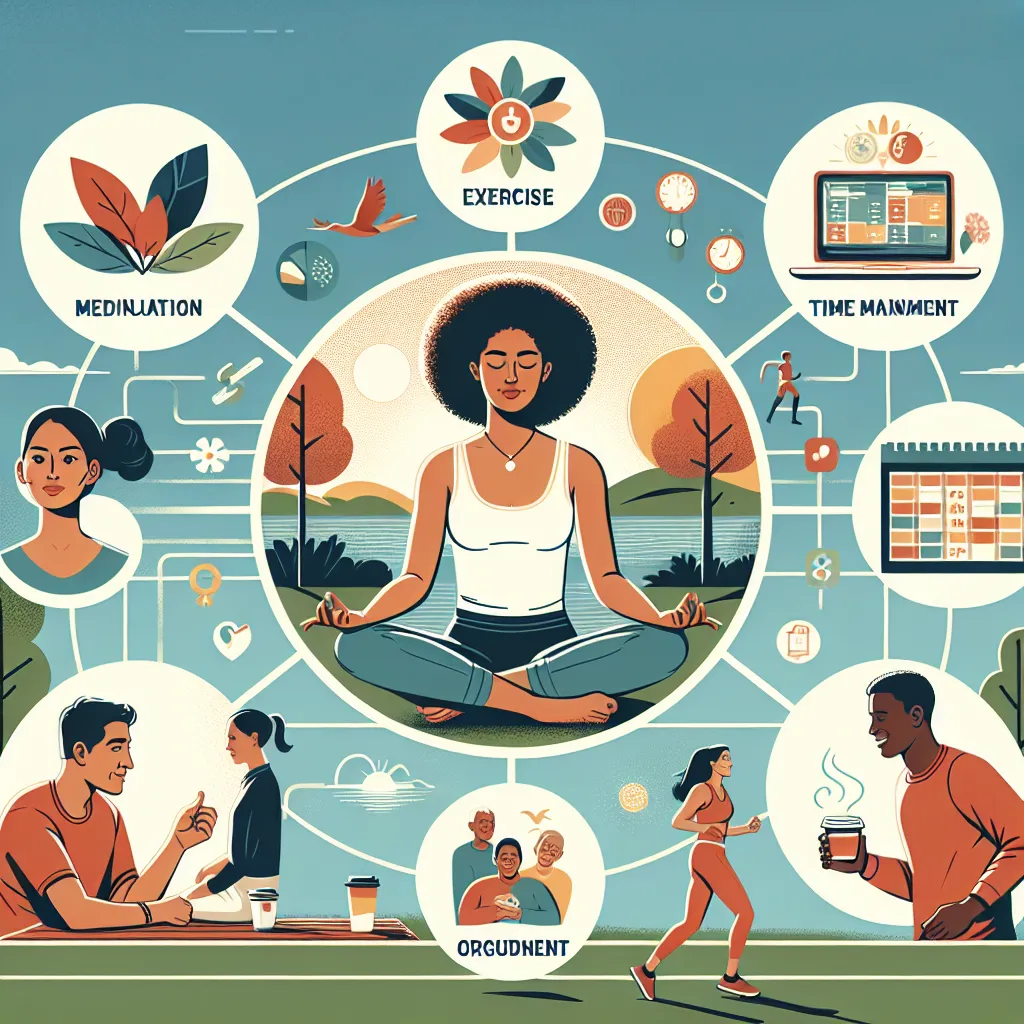
Key Vocabulary and Phrases for High Scores
To achieve a high score in your IELTS Speaking test when discussing stress management, consider using these advanced vocabulary items and phrases:
Resilience /rɪˈzɪliəns/ (noun): The capacity to recover quickly from difficulties. Example: “Her remarkable resilience allows her to bounce back from setbacks quickly.”
Cope with /kəʊp wɪð/ (phrasal verb): To deal effectively with something difficult. Example: “He has developed several strategies to cope with workplace stress.”
Thrive under pressure /θraɪv ˈʌndə ˈpreʃə/ (idiom): To flourish in stressful situations. Example: “Unlike many, she seems to thrive under pressure, producing her best work when deadlines loom.”
Stress inoculation /stres ɪˌnɒkjʊˈleɪʃən/ (noun): A form of cognitive-behavioral therapy aimed at reducing stress responses. Example: “The company provides stress inoculation training to help employees manage high-pressure situations.”
Mindfulness /ˈmaɪn(d)fʊlnəs/ (noun): The practice of being aware and fully present in the moment. Example: “Practicing mindfulness has significantly improved her ability to handle stress.”
Emotional intelligence /ɪˈməʊʃənl ɪnˈtelɪdʒəns/ (noun): The capacity to be aware of, control, and express one’s emotions. Example: “His high emotional intelligence allows him to navigate stressful interpersonal situations with ease.”
Burnout /ˈbɜːnaʊt/ (noun): Physical or mental collapse caused by overwork or stress. Example: “To avoid burnout, she makes sure to take regular breaks and prioritize self-care.”
Adaptability /əˌdæptəˈbɪləti/ (noun): The quality of being able to adjust to new conditions. Example: “Her adaptability is evident in how quickly she adjusts to unexpected changes in the project timeline.”
Examiner’s Advice
To excel in the IELTS Speaking test when discussing stress management:
- Use a variety of vocabulary and structures to demonstrate your language proficiency.
- Provide specific examples to support your points, drawing from personal experiences or observations.
- Show your ability to discuss abstract concepts by exploring different perspectives on stress and its management.
- Practice speaking on this topic regularly, focusing on fluency and coherence in your responses.
- Incorporate idiomatic expressions naturally to enhance the sophistication of your language use.
Remember, the key to success in the IELTS Speaking test is not just about what you say, but how you say it. Aim for clear pronunciation, natural intonation, and a confident delivery to make the best impression on your examiner.
For more tips on handling pressure in various situations, check out our guide on how to describe a time when you had to give a presentation under pressure . This will help you expand your vocabulary and improve your ability to discuss stress-related topics in your IELTS Speaking test.
How to Describe a Place You Like to Go for Inspiration in IELTS Speaking: Expert Tips and Sample Answers

Mastering IELTS Speaking: Tips for Describing a Supportive Person

How to Ace IELTS Speaking: Describing a Time You Dealt with Failure
Leave a reply cancel reply.
Your email address will not be published. Required fields are marked *
Your Name *
Email Address *
Save my name, email, and website in this browser for the next time I comment.
Submit Comment

IMAGES
COMMENTS
IELTS Writing Task 2 (IELTS Essay Writing) requires a candidate to use a wide range of vocabulary. Connective words and phrases are very important to finish writing task 2 in a logical and coherent way. You must use transitional or connective words in your writing task 2 as it is considered one of the important factors for a high band score.
List of Good Vocabulary Words for IELTS. Check this list for good vocabulary words to use in IELTS essays, given along with their meaning and an example sentence to illustrate how to use the word. Eg.: A generous grant, enabled the library to significantly aggrandize its collection of books on tape.
IELTS essay vocabulary . Expressing personal opinions: In my opinion, … Personally, I think that … It seems to me that ... I must admit that … I believe/suppose that ... I cannot deny that … As I see it, … As far as I'm concerned, … I would argue that ... I'd like to point out that … In my experience, ...
Vocabulary enables every individual to express their thoughts and opinions.When a person learns a new language or takes a language proficiency examination like IELTS, it is essential to emphasize on it.Since vocabulary or lexical resource is an evaluation criterion for the writing module, in this article, we will focus on vocabulary for IELTS essay, which is the Task 2 for IELTS Writing.
IELTS vocabulary lessons with word lists, practice exercises and pronunciation. Learn word lists for common topics and how to pronounce words correctly in English. Vocabulary is 25% of your marks for IELTS writing and speaking and also plays a key role in listening and reading. You need to develop your English language vocabulary if you wish to ...
IELTS vocabulary for the writing section refers to the academic style and word choice (lexical resource) when writing your essay. Below we have put together tutorials with word lists to help you improve your IELTS score. Vocabulary about climate change (word list included) Vocabulary: the environment (with Ted Talk and list of collocations)
2.1 Avoiding repetition. Using a range of vocabulary also includes avoiding words and phrases given to you in an IELTS statement, as well as repeating your own ideas.. Being able to paraphrase is a key skill to help you avoid repetition throughout your writing and speaking.. Take a look at our guide to paraphrasing for top tips and examples.. You also need to refer back or forward to people ...
Here we have listed useful vocabulary and phrases you can use when writing an essay in IELTS Writing Task 2 . Instead of providing an extensive list of 100+ essay phrases for IELTS, we have narrowed it down to the most essential. Keep the vocabulary list next to you while you practise, so you can get ideas for linking and expressing your views.
IELTS Vocabulary is not assessed as a separate module on the test but does comprise 25% of your total score on the Writing and Speaking tests, and is therefore essential. ... After years of marking IELTS essays, I can promise you that learning a few words from a list you found online will never increase your score.
Here you will find useful vocabulary for IELTS Essay writing such as beginnings, endings, stating viewpoints and so forth. Beginnings Over the last century … The idea that … has its merits. While this is an interesting proposal and has some merit, my own view is that it would … Despite these arguments, there is […]
1. IELTS Writing Task 2 Test Information. Learn about your IELTS writing task 2 test. All lessons and tips on this page are for both Academic and GT writing task 2. IELTS Writing has two tasks: Task 1 (a report) and Task 2 (an essay). The total time is one hour for both tasks. You should spend only 40 mins on task 2.
In the IELTS academic or general writing task 2, you will need to write an essay of at least 250 words on a topic that requires you to present an argument in a format that the instructions lay down. This Task takes about 40 minutes. The topics are primarily abstract, with no correct answer. The point to note here is that this task is worth ...
Here you'll get all the words you need with practice exercises around key academic words, idiom practice, topic related words and other important vocabulary. It is important to have a flexible use of a wide range of vocabulary for IELTS as the examiner will be looking for this in the writing and speaking. It is also necessary for your reading ...
IELTS Writing Task 2: band 7-9 vocabulary. Here's a list of the good words, collocations and phrases from the essay that I shared in last Wednesday's lesson. Maybe you could try using some of this vocabulary in your own sentences. the future impact of. the two opposing points of view.
in. IELTS Vocabulary. When you turn to IELTS Writing Task 2 (the formal essay) on test day, you may encounter an "advantage and disadvantage" essay. This type of essay asks you to evaluate both sides of an issue. Having the right vocabulary for IELTS Writing Task 2 essays is one key to increasing your band score. This is essay is no different.
IELTS Writing Task 2: Advanced vocabulary for essays to get 7.0+. Academic Task 2. One of the criteria of the Written Tasks is Vocabulary. According to this criteria, to get a decent score, we must use a range of vocabulary, precise words. One of the criteria of the Written Tasks is Vocabulary.
Vocabulary is the quintessence of effective communication in any language. Its share is 25% in overall marks in IELTS Writing and Speaking. Furthermore, it also occupies a pivotal role in listening and reading tests. Underdeveloped vocabulary knowledge prompts you to repeat words while writing, making you run short of words while communicating ...
Using a wide range of vocabulary will help you to gain higher score at IELTS. Don't fear: you don't have to learn all of these phrases. Just choose a few that you like and practice using them in your writing. See also Vocabulary to describe graphs. Listing. Giving examples. Generalising. firstly, secondly, thirdly. for example.
The linking words list below is essential for IELTS writing task 2 for high score. The examiner needs to see a range of linking words in your essay to award you a high score for the criterion of Coherence and Cohesion which is 25% of your marks. You will be checked on your range, accuracy and your flexibility of linking words in IELTS writing ...
The five most common IELTS Writing Task 2 questions are: Opinion (Agree or Disagree) Advantages and Disadvantages. Problem and Solution. Discussion (Discuss both views) Two-part Question. Below I will outline examples and a structure approved by experienced IELTS teachers and examiners for each type of question.
Vocabulary for Adding further information: In your essay, you need to present reasons and arguments to make your point of view stronger. For this, you often need to add multiple examples or cases and those examples or cases should be connected using some linking words. Such linking words are given below so that you can use them in your IELTS essay.
Explore the list of IELTS writing topics related to pie charts and solve them with the help of pie chart vocabulary for IELTS preparation. IELTS Academic Writing Task 1 Topic : Survey conducted by a university library - Pie chart ... Recent Writing Task 2 Essay Topics for IELTS 2024; IELTS Band 9 Essay Samples: Writing Task 2 Insights for IELTS ...
IELTS Word List - Synonyms . Check Also: 200+ IELTS Academic Word List & Examples and PDF Essay Writing Tips & How to Avoid Typical Mistakes 2000+ Common Phrasal Verbs List From A-Z (Free PDF) IELTS Synonyms Words List A to Z + PDF . Vocabulary Words for IELTS List 1. Here is the first list of IELTS vocabulary words with their synonyms:
35 Sample Band 9 IELTS Essays. Take a look at these 35 sample Band 9 IELTS essays for writing task 2 of the IELTS exam. Task 2 can cover a wide range of essay topics for the IELTS writing task section of the test, so preparation is key. Use the following samples when preparing your IELTS essays to see how close you are to a band 9!
Most Commonly Used IELTS Map Vocabulary in 2024 Writing Task 1 of the IELTS Academic test often includes a map description, a task you may find challenging. In this task, you need to describe the given map in a clear, well-organised essay of at least 150 words.
To speed up learning ideas for topics, I created an e-book to help you. You can find it in my store: IELTS Essay Topics E-books. This e-book contains ideas for over 150 common essay topics with relevant vocabulary so you can learn ideas for topics. Click here to see a sample: Ebook Ideas for Topics Sample Chapter
Use a variety of vocabulary and structures to demonstrate your language proficiency. Provide specific examples to support your points, drawing from personal experiences or observations. ... The IELTS Writing test, particularly the essay section, often poses a significant challenge for many test-takers. It requires…